

LEGISLATIVE UPDATE
CHECK OUT WHAT THE GUILD IS WORKING ON




CHECK OUT WHAT THE GUILD IS WORKING ON



THE JOURNEY FROM FIELD TO GLASS TAKES MANY TWISTS AND TURNS

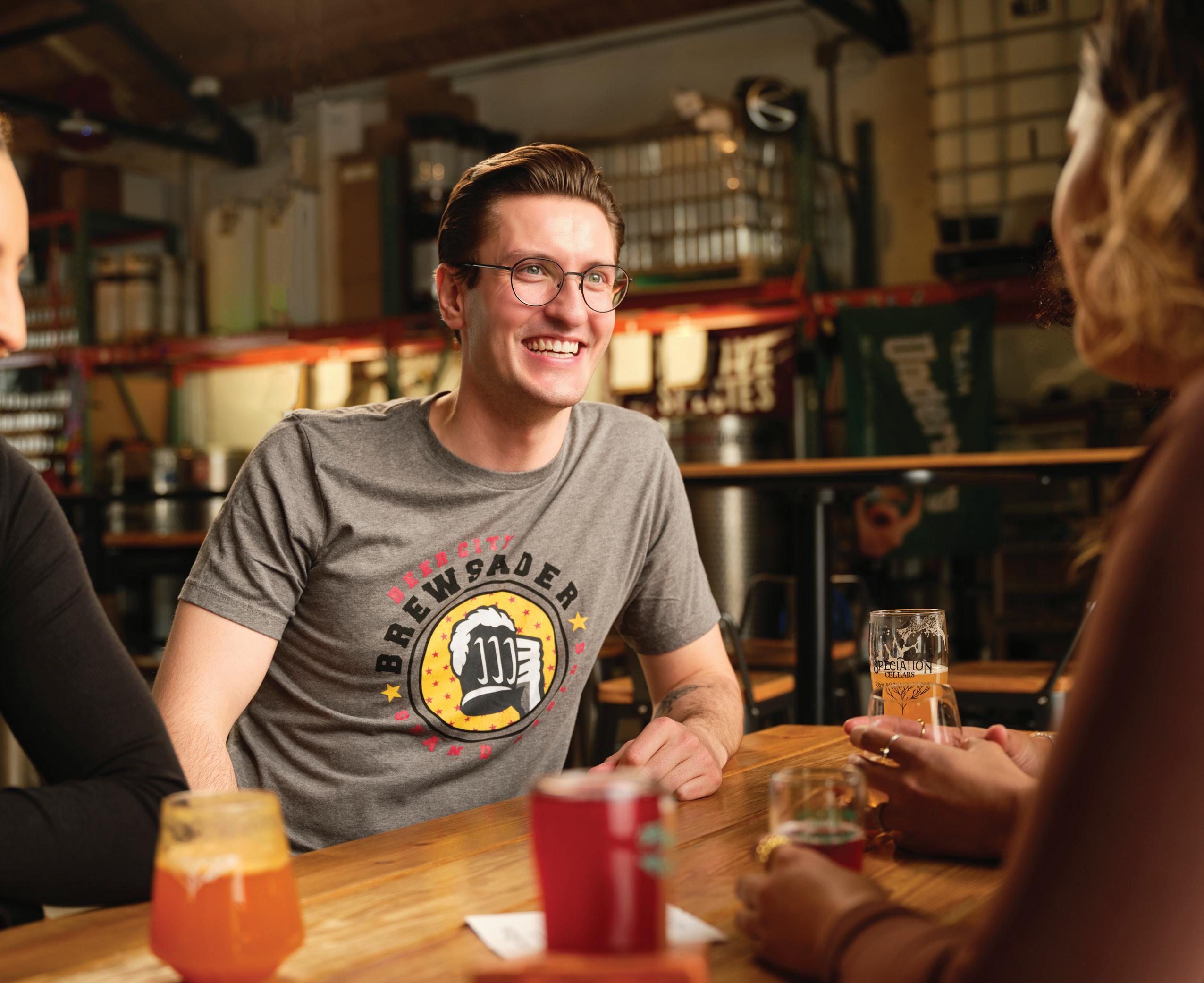











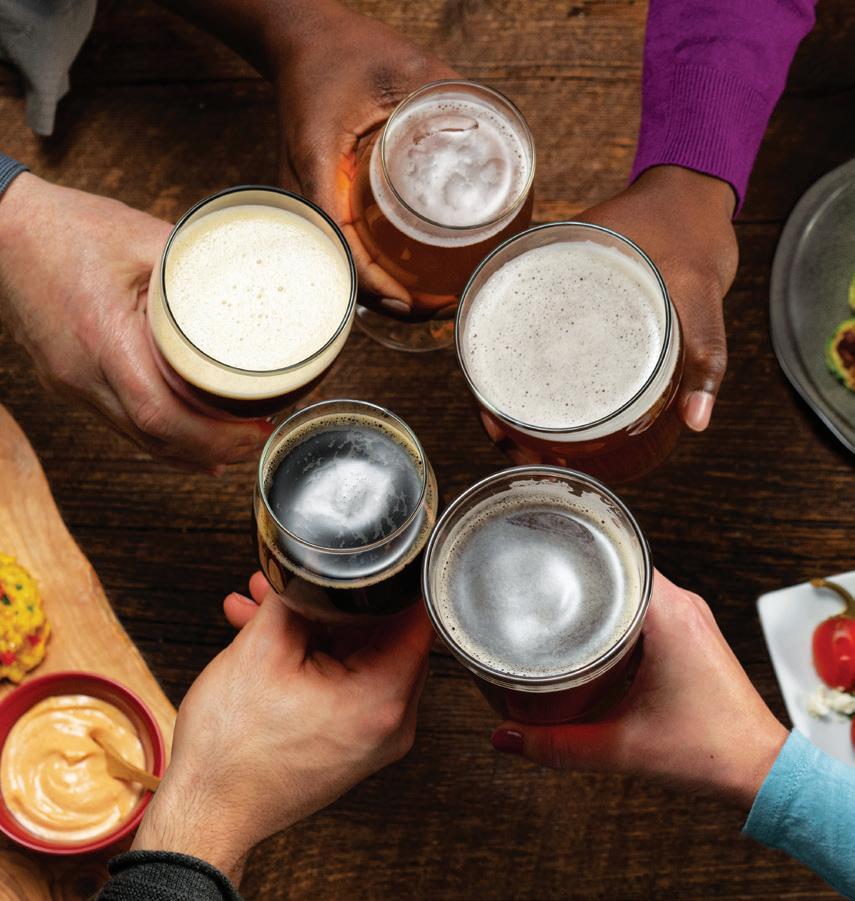



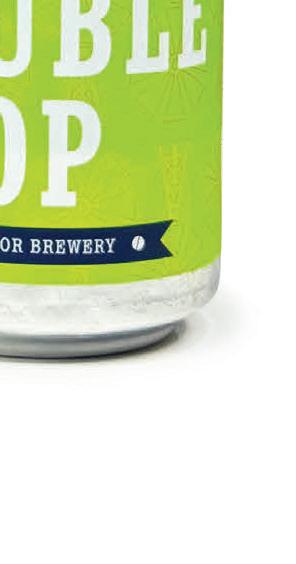
The way we see it, a well-crafted beer deserves a well-crafted label. And that’s where Argent comes in. We can design and print creative custom labels that stand out on the shelf. And that translates to sales. Argent is a woman-owned company that takes quality, service and innovation to exciting places. Contact Argent today and let’s make greater things happen at 888.293.9052.


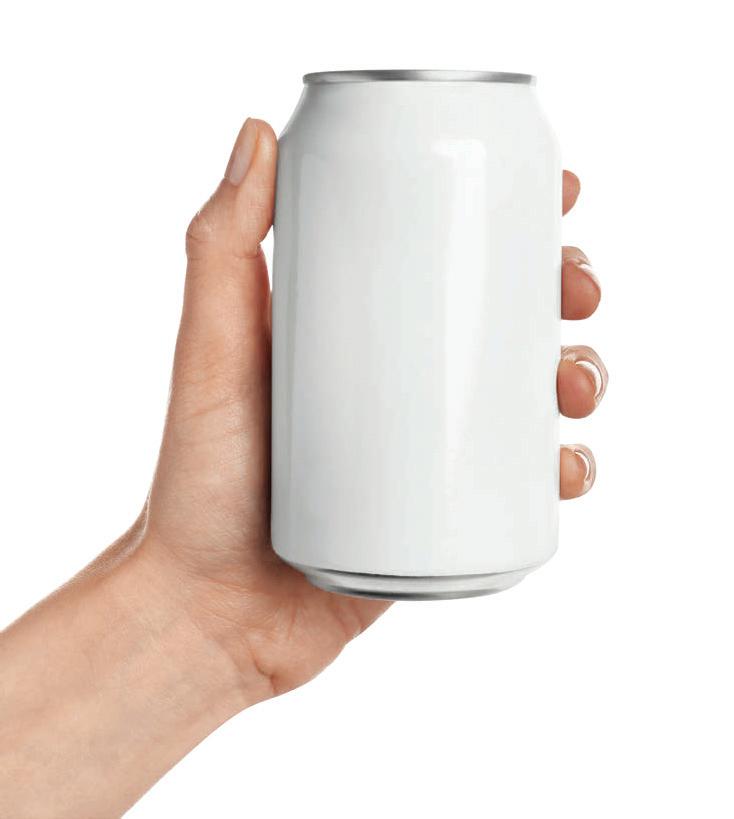














8

8 / WHERE DOES MY BEER COME FROM?
Getting a brew from field to glass is a creative, complex process. PLUS: Brewers can distribute their products to consumers in a few different ways.
The Michigan Brewers Guild is advocating for changes to Michigan’s nonalcoholic beer sales and direct-toconsumer shipping.
6 / A WORD FROM TIM BORING MDARD’s director highlights the work and ingredients that go into a glass of Michigan craft beer.
16 / STATEWIDE BREWERY DIRECTORY
Plan your next brewery trip with the ultimate regional guide to Guild member breweries on both peninsulas.
Join the Guild and enjoy special privileges at our annual beer festivals.
MICHIGAN BREWERS GUILD STAFF
Executive Director
Scott Graham director@michiganbrewersguild.org
Assistant Director
Sherry Kepsel sherry@michiganbrewersguild.org
Communications, Public & Media Relations
Dianna Stampfler media@michiganbrewersguild.org
Allied & Enthusiast Memberships
Rhonda Kelly membership@mibeermail.com
MICHIGAN BREWERS GUILD 2024 BOARD OF DIRECTORS
President
Andrea Pernsteiner, Ore Dock Brewing
Vice President
Max Trierweiler, The Mitten Brewing Co.
Treasurer
Travis Fritts, Old Nation Brewing Co.
Secretary
Jason Spaulding, Brewery Vivant and Broad Leaf Brewery + Spirits
Director
Aaron Ross, Kalamazoo Valley Community College
Director
Linus De Paoli, 3 Gatos Brewery
Director
Eric Plata, Batch Brewing Co.
HOUR CUSTOM PUBLISHING
General Manager Ed Peabody epeabody@hour-media.com
Managing Editor Emily Doran
Art Director Mike Wagester
Associate Editor Jordan Jewell
Copy Editor Olivia Sedlacek
Production Director Jenine Knox
Senior Production Artist
Stephanie Daniel
Advertising Coordinator
Jonathan Boedecker
Contributors
Tim Boring, John Liberty, Brenda Sodt Marshall
Advertising Sales
Karli Brown, Cathleen Francois, Maddy Gill, Lisa LaBelle, Carol Lawrence, Andrew Nolan
Advertising Director Jason Hosko / 248.268.8026

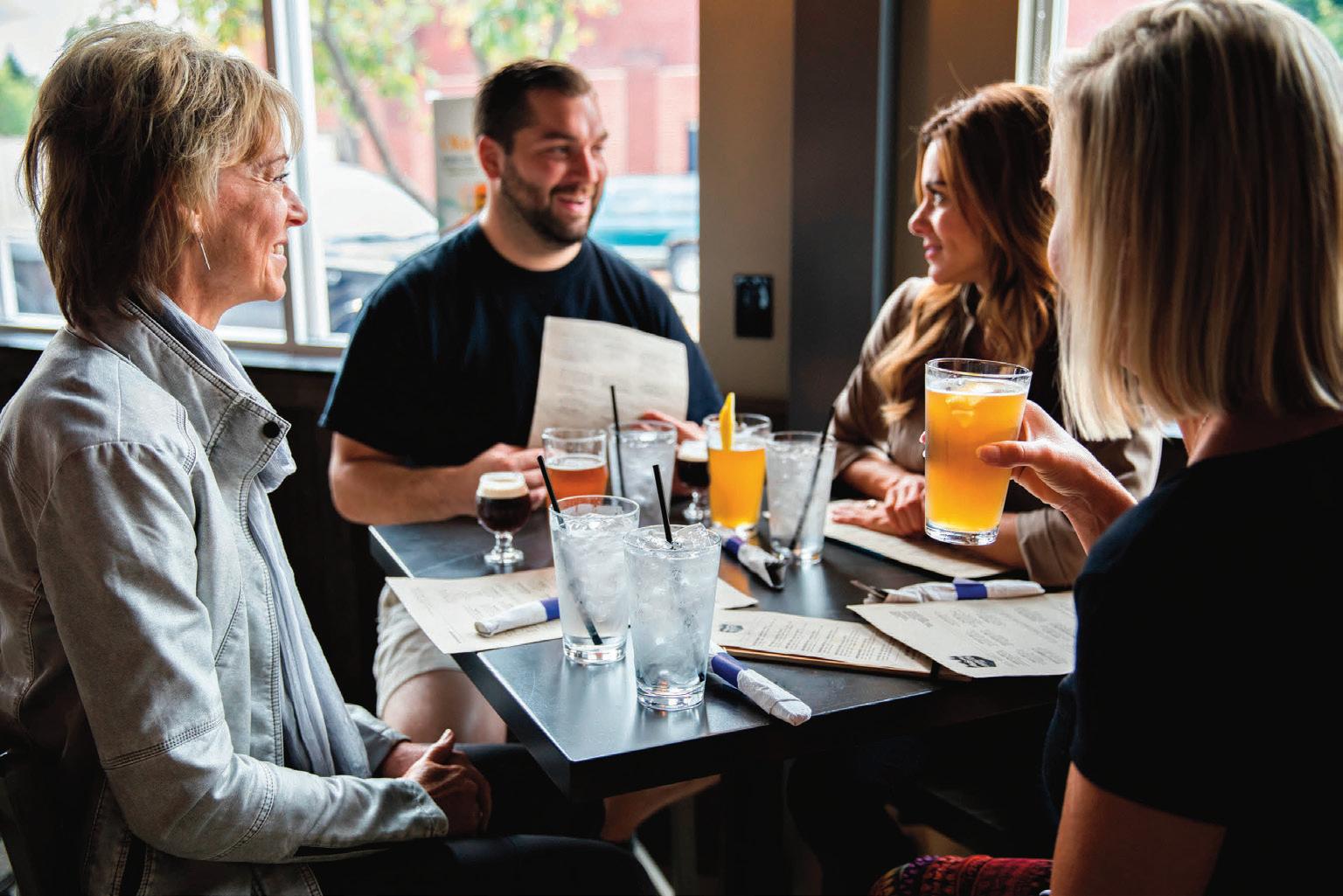
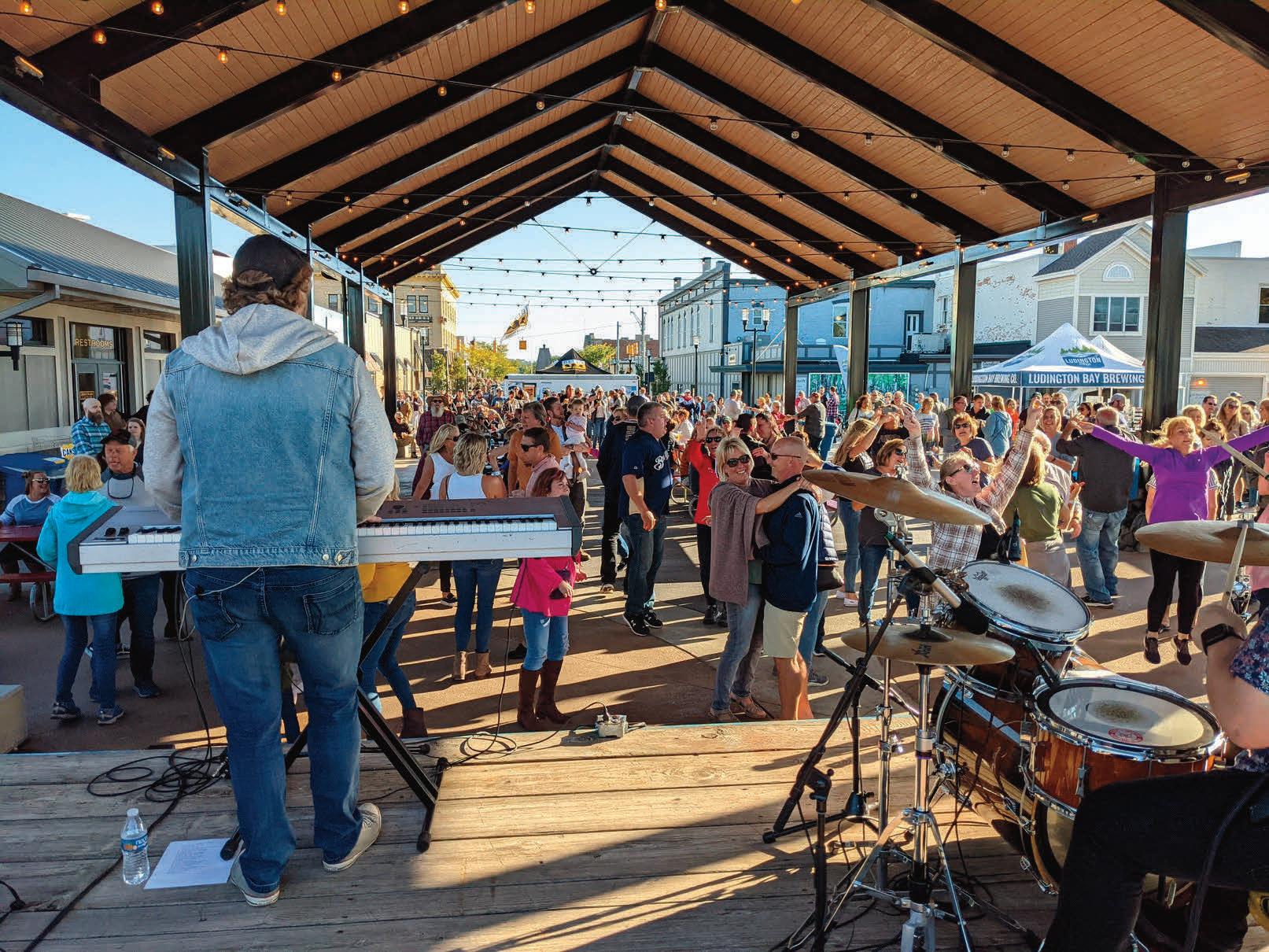

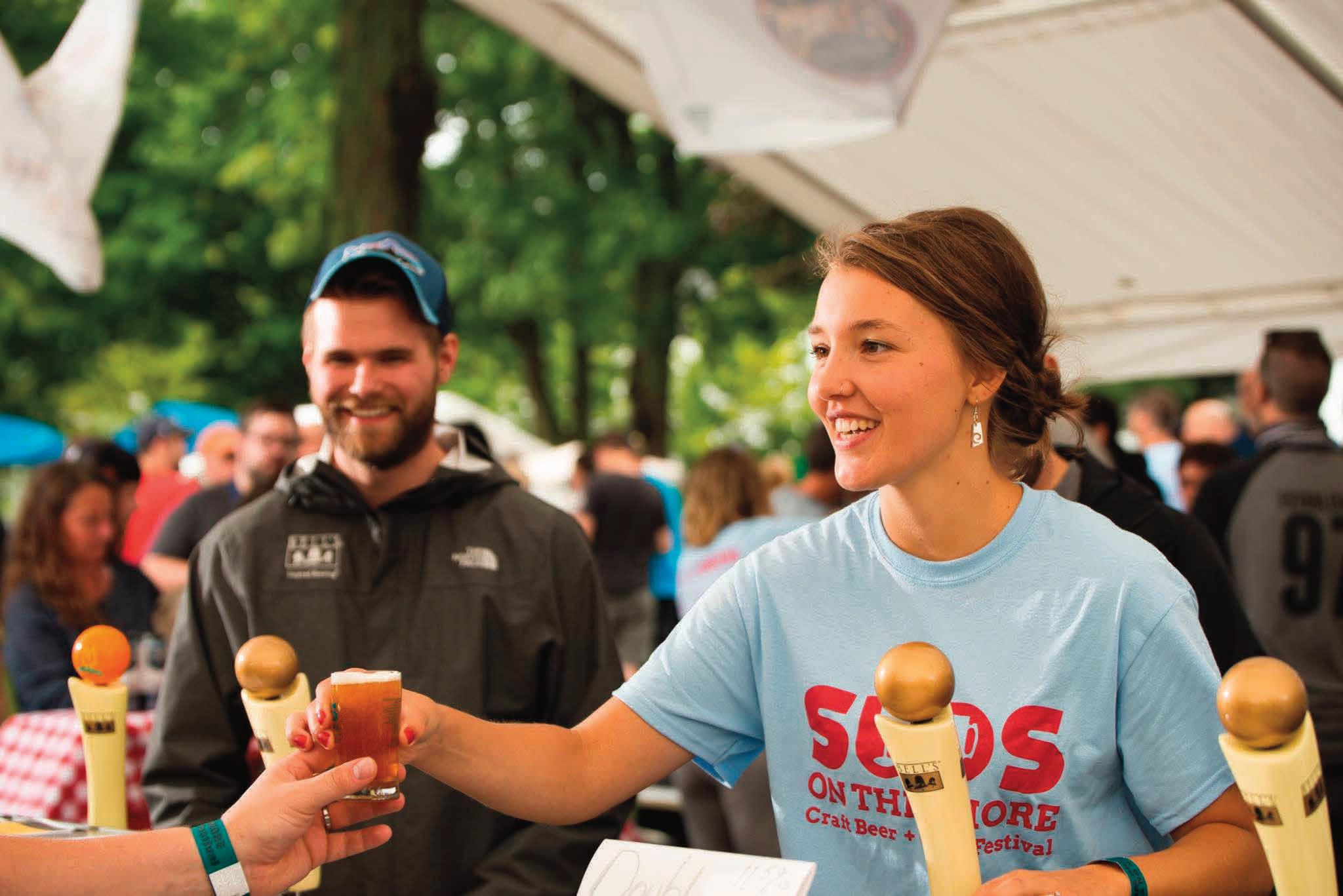

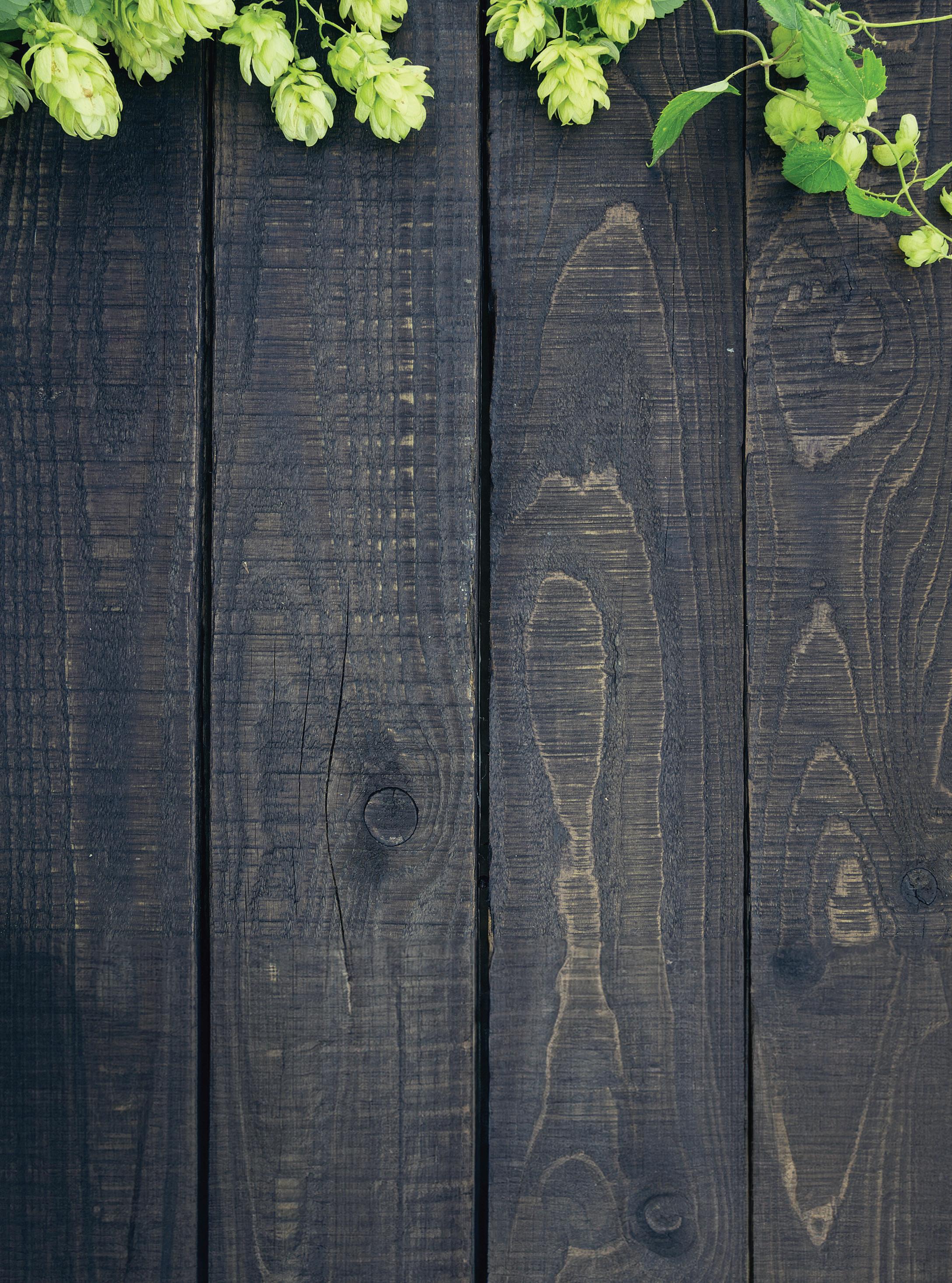
Next time you enjoy a Michigan craft beer, take a moment to reflect on what goes into the beer that makes it so special. Every beer contains hops, malt, and water. But our craft brewers expertly combine these often locally sourced ingredients with other special components to provide you with a “taste of place” that is purely Michigan.
This is an exciting time for Michigan-grown beer ingredients. Though a young industry, we are fourth in the nation for hop production, with the existing farms feeling their presence as non-fleeting. Similarly, Michigan is home to more than a handful of independent malt houses, many of which are sourcing grain right here from our state. Growing grains and hops for brewing is no small feat and does not happen without careful attention to the particulars required for crafting excellent product. The Michigan Department of Agriculture and Rural Development has invested more than $1.8 million since 2018 into research to the benefit of the state’s craft beverage industry thanks to ongoing support in the Governor’s bipartisan budgets. This includes multiple projects to better understand how to effectively grow hops and brewing grains with our unique climate and soils.
When we consider what goes into a Michigan craft beer, the ingredients are only one part of the story. Michigan breweries play an integral role in the development and personality of communities across our state. These businesses create jobs, utilize regional supply chains, and help to tell the story of the town that they call home. Craft breweries are born of innovation, risk, and commitment, and are representative of the hardworking people that make it happen every day.
Next time you enjoy a Michigan craft beer, I invite you to lean into the story behind each glass, including the people and environment from which it was made. Ask if the brewery has any beers that utilize Michigan-grown hops or malt. You may find the story makes the product taste even better.









With the Greater Lansing Craft Beverage Pass, visitors and residents alike can use this free gamified experience at over 20 Greater Lansing businesses. Check in, find deals and discounts, win prizes and most of all, enjoy Lansing’s best in craft beverages.



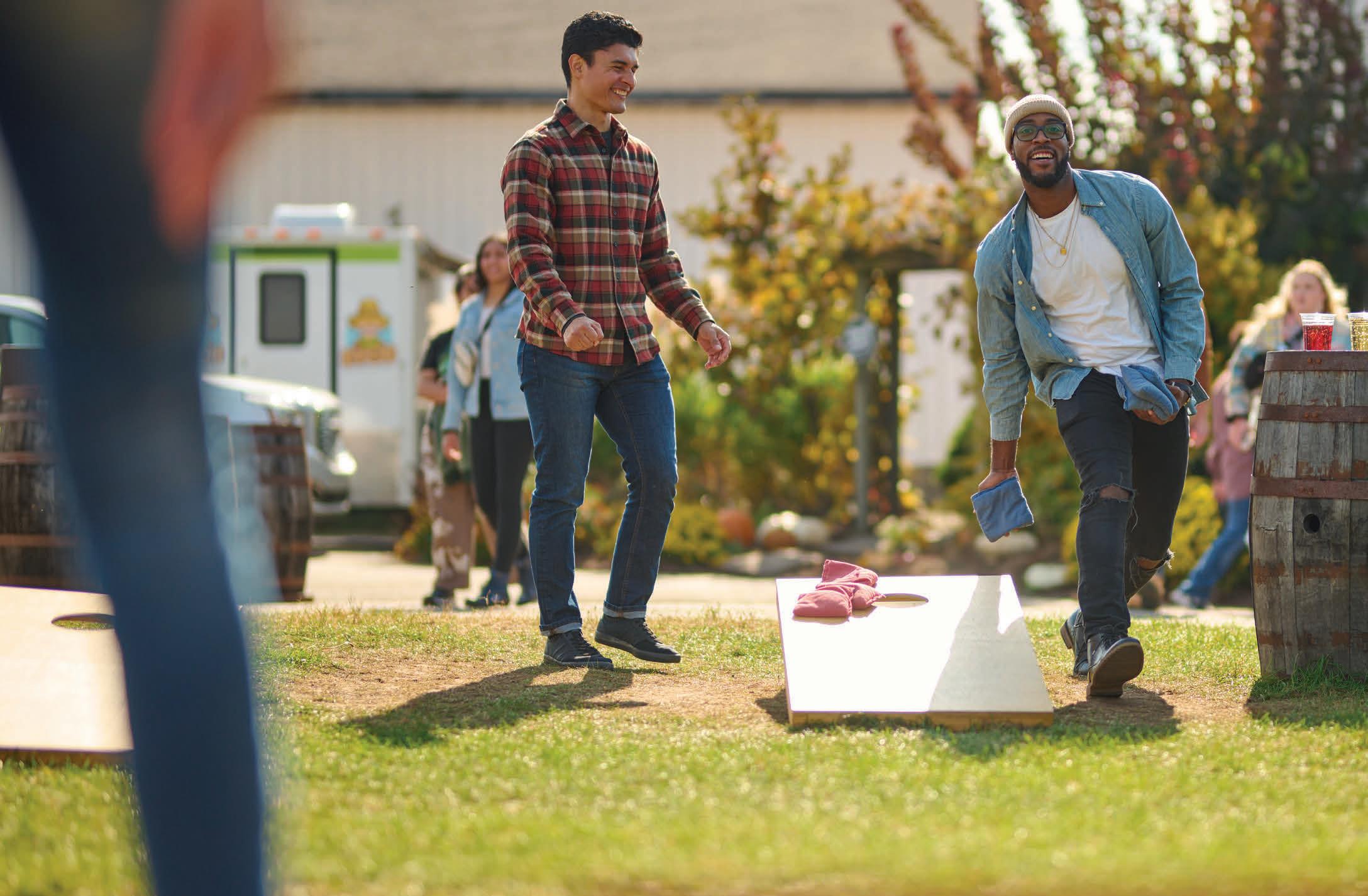



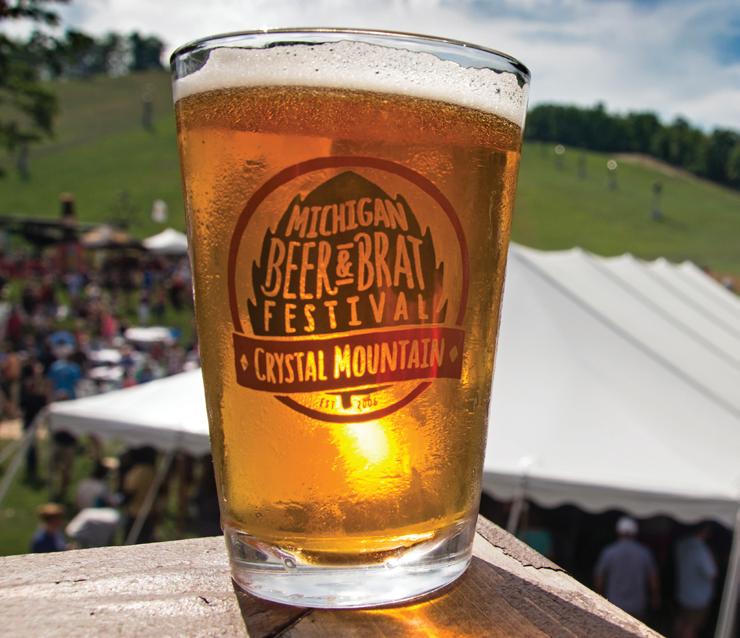

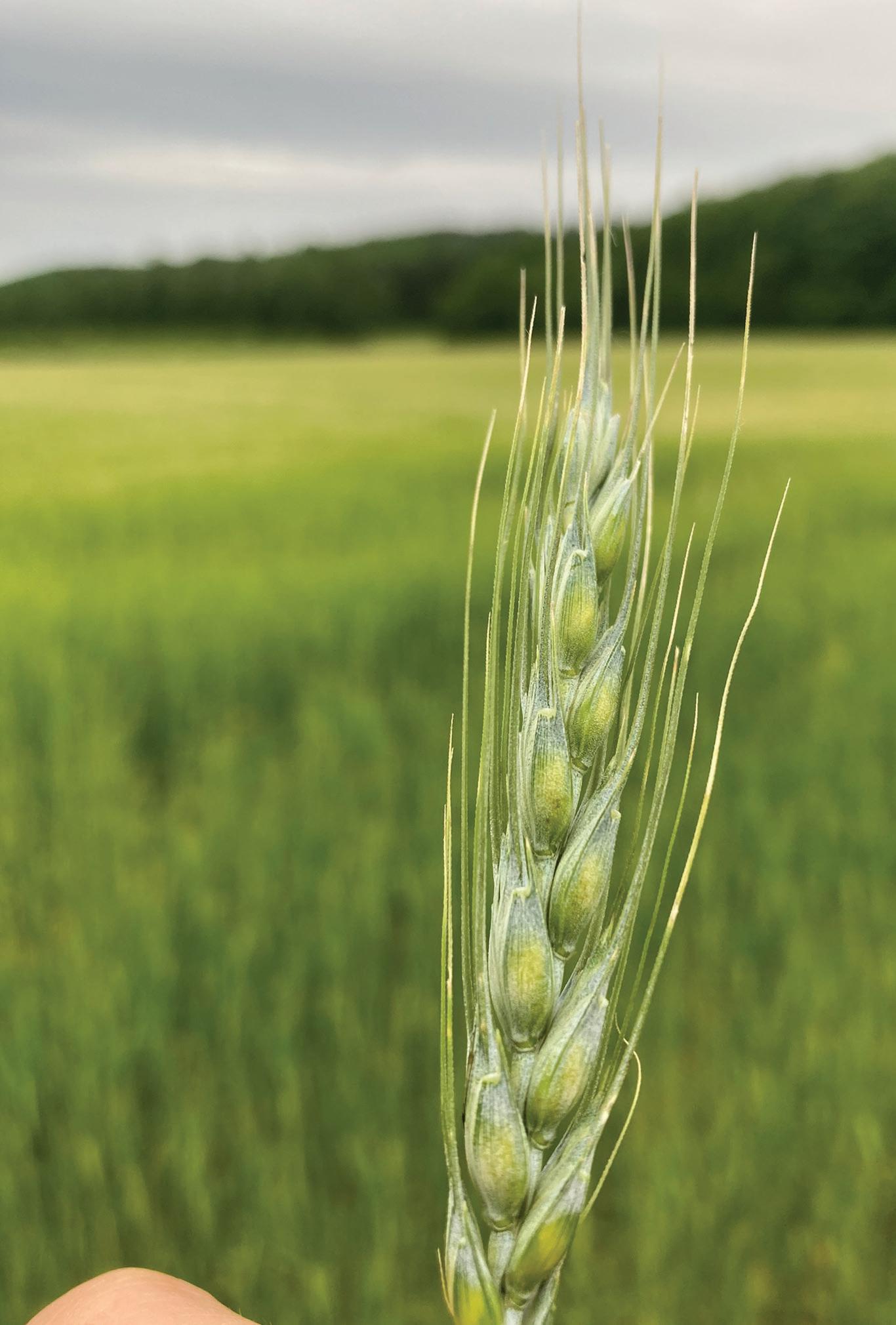
Enjoying a refreshing pour of Michigan beer at the bar, taproom table, or living room couch is effortless — one of life’s simple pleasures, if you will.
Getting that brew from field to glass is another story. The beer-making process, starting all the way back with agriculture, requires a lot of time, dedication, collaboration, and effort, and every step has an impact on the final product.
Malt, hops, water, and yeast — the primary ingredients of craft beer that can be sourced in parts of Michigan or from across the globe — might call for extensive experimentation to get just the right combination. Other ingredients that can set a brew apart from the rest, such as sugar, honey, fruits, herbs, spices, and even doughnuts, add to the complexity and create even more opportunities for unique recipes. Along the way, hours of planning and labor — backed by expensive equipment and accessories — go into generating the finished product and getting it in front of consumers.
It’s a delicate combination of art and business.
“Your beer has a huge agricultural component,” says Scott Graham, executive director of the Michigan Brewers Guild. “Hops have to be processed. Barley has to be processed into malt. It’s all pretty complicated, and it takes cans or glass or kegs or cardboard to get those products into consumers’ hands.”
Ted Linabury, who opened Brewery Outré in Kalamazoo in the spring of 2022, counts himself among the fortunate brewers in a state loaded with

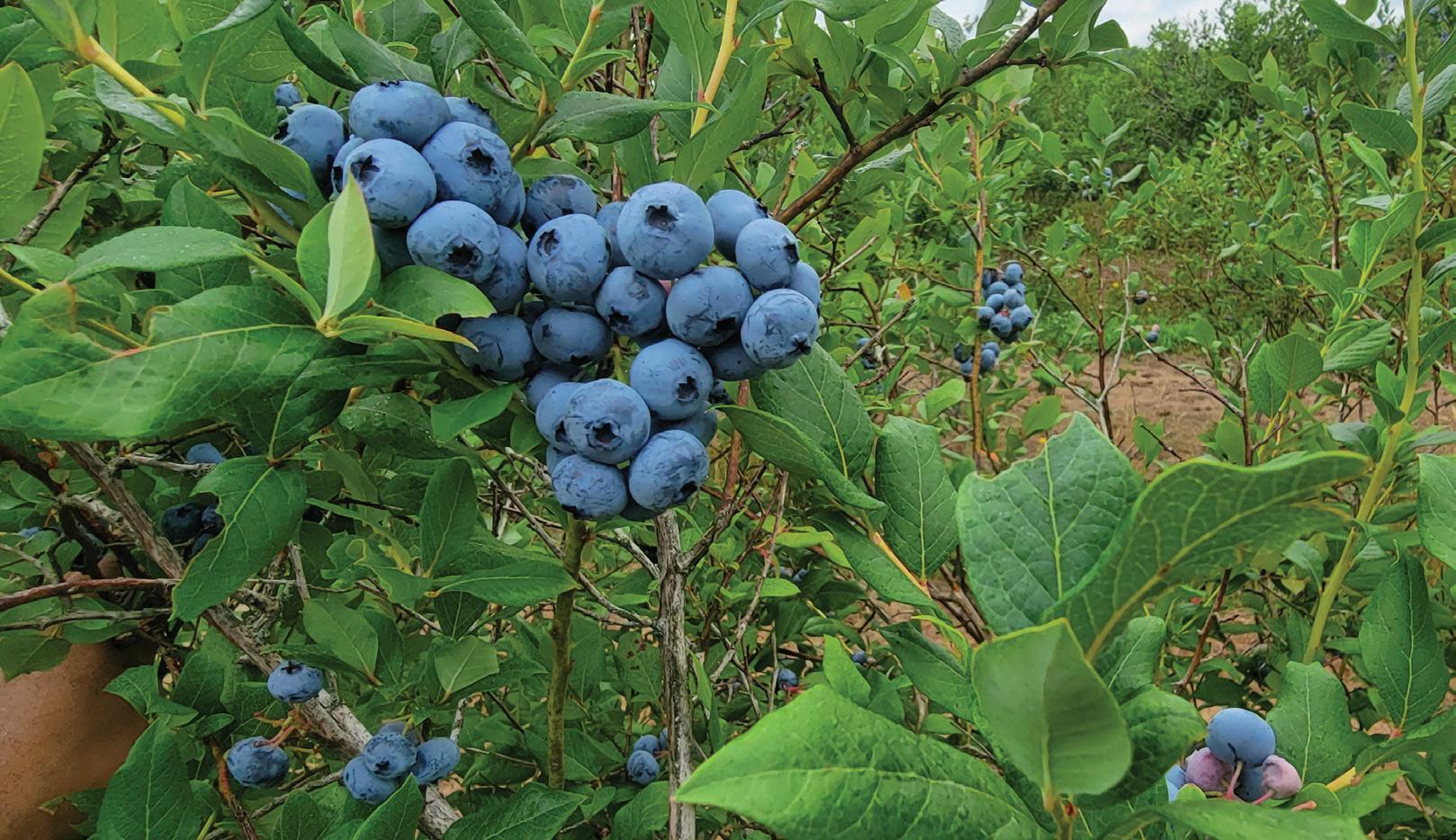

resources. He says virtually all of his base malts come from Empire Malting Co. in Leelanau County, not far from the Sleeping Bear Dunes. About half of his hops are Michigan grown, and the rest are purchased through the Hop Alliance in Northport and Hop Head Farms in Hickory Corners.
“I was inspired by saisons and other regional beer styles from Europe to brew beers that are a product of their environment,” Linabury says. “Michigan is unique in our ability to grow both hops and [barley], and I wanted to showcase the effect of our unique growing environment. There’s more to experience in a beer when you can appreciate its subtleties and complexity. Beyond that, there’s a great opportunity to meet the producers and make friends in the industry.”
Graham says the hop industry has “reemerged” in recent years, growing in tandem with the state’s beermakers. Some Michigan hops hold unique characteristics that stem from their terroir and make them increasingly attractive to brewers here and elsewhere.
The state is also dotted with breweries harvesting ingredients directly from their own properties, such as Bell’s Brewery in Comstock, Brewery Terra Firma in Traverse City, River St. Joe in Buchanan, and Waypost Brewing Co. in Fennville, among others.
Many other breweries don’t need to look far to source notable produce. Take, for example, the partnership between a
couple of Southwest Michigan breweries and Kyle Mitchell of Mitchell’s Patch of Blue in Bangor. Mitchell is a thirdgeneration blueberry farmer who took over the family operation in 2019. He’s also a culinary instructor at Kalamazoo Valley Community College, where he teaches food safety, culinary math, agrifoods, and processing. Mitchell has partnered with several area restaurants and breweries to provide organic blueberries for their food and beer. Two of those partners are Three Blondes Brewing in South Haven — which uses Mitchell’s blueberries in its pizza and barbecue wraps — and Guardian Brewing Co. in Saugatuck. Guardian Brewing’s owner/ brewer, Kim Collins, won a bronze medal at the 2023 Denver International Beer Competition with Beauregarde’s Revenge, a French-Belgian saison made
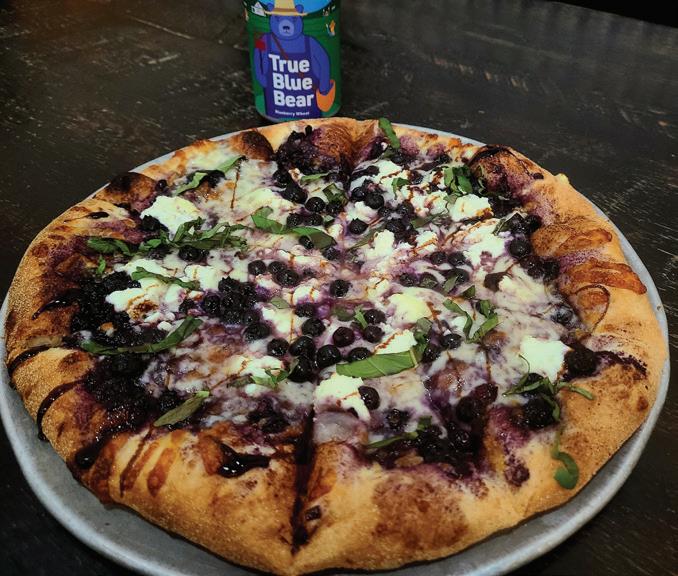
with basil and Mitchell’s blueberries.
“They are just about a little less than a half-hour up the road from us,” Mitchell says. “We like going up there quite a bit. We have these berries, and Kim does a lot of fun stuff with a wide range of ingredients. That was a really nice collaboration.
“You know what you’re getting, and you have that relationship for future years. If Kim ever said she needed something or needed extra berries or they were trying to do a new food special, I wouldn’t hesitate to drive up there and deliver them to her.”
Carrie Troyer, co-owner of Three Blondes Brewing in South Haven, also enjoys the in-person connection and neighbor helping neighbor.
“We source our blueberries locally because this region grows the best blueberries in the world,” she says. “It’s an added bonus that there are no shipping costs involved when the blueberries are personally delivered by the owner of the company. … And the less your food has to travel, the better it is for the environment. Plus, it’s fun to see the owners and employees of these local blueberry farms come in to support Three Blondes and enjoy tasting their quality product in our food and beer.”
And then, of course, beer can get weird — in a good way. Russell Springsteen, owner-operator of Traverse City’s Right
Brain Brewery, knows the practice well. His brewery’s tagline is “Keep Beer Curious,” and he lives up to the motto.
Asparagus, mangalitsa pig, and entire cherry pies have made their way into beers at Right Brain. When you’re from the Cherry Capital of the World, it’s not a big leap to see where things can head. In partnership with the famous Grand Traverse Pie Co., the Right Brain team uses whole cherry pies and pie portions in its amber ale dubbed Cherry Pie Whole. The brewery first toyed with the concept around 2010 in conjunction with the popular National Cherry Festival in Traverse City.
“The first time we brewed it, we didn’t think about all the extra sugars that were in there,” Springsteen says. “This thing fermented like a jet. It was so crazy. It fermented out in like two days. We were like, ‘Whoa!’ And then we figured out from there how many pies to use and what we really needed. We took this to the Cherry Festival. It was supposed to be a light and easy-drinking beer, which it was. But it was like 8% [alcohol by volume].”

The Right Brain team continued to tweak the recipe to find the sweet spot.
“We reformulated how many pies and redesigned our malt bill,” Springsteen says. “That was kind of fun. We have it pretty dialed in now.”
Experimentation with unique ingredients is an important part of the Michigan craft beer scene, one that beer drinkers have come to expect.
“The consumer demands all these crazy beers,” Springsteen says. “We put them on tap, and we burn right through them. We have 35 beers on tap, and seven or eight of them have strange ingredients in them.”
Graham agrees that unique, distinctly Michigan beers have earned their place on the tap list.
“It’s great to talk about experimenting with different things,” he says. “Tasting different beers is fun, to find things that you hadn’t imagined or a different take on it. A lot of people put spicy peppers in beer. Sometimes they are spicier than others; sometimes they are more flavorful than others. It definitely has added a layer of intrigue and interest from the consumer’s standpoint.”
Once a beer is concocted and ready for public consumption, more options for brewery owners emerge as far as packaging and release. In the taproom, that’s pretty simple: Bartenders serve up beer in a glass and give it directly to the consumer. Packaging beer and selling it outside of the taproom is more nuanced.
Canning is one important part of the process of getting the final product into the hands of consumers. Before investing in a canning line capable of handling several cans per minute, many breweries delve into small-scale (one-at-a-time) canning. Grand Rapids-based Oktober, which manufactures a wide range of can seamers, is one of the leaders in smallscale canning. The company’s equipment allows bartenders and brewery staff members to pour to-go cans quickly for customers, enabling additional sales. During the pandemic lockdown, breweries across the state relied on Oktober to
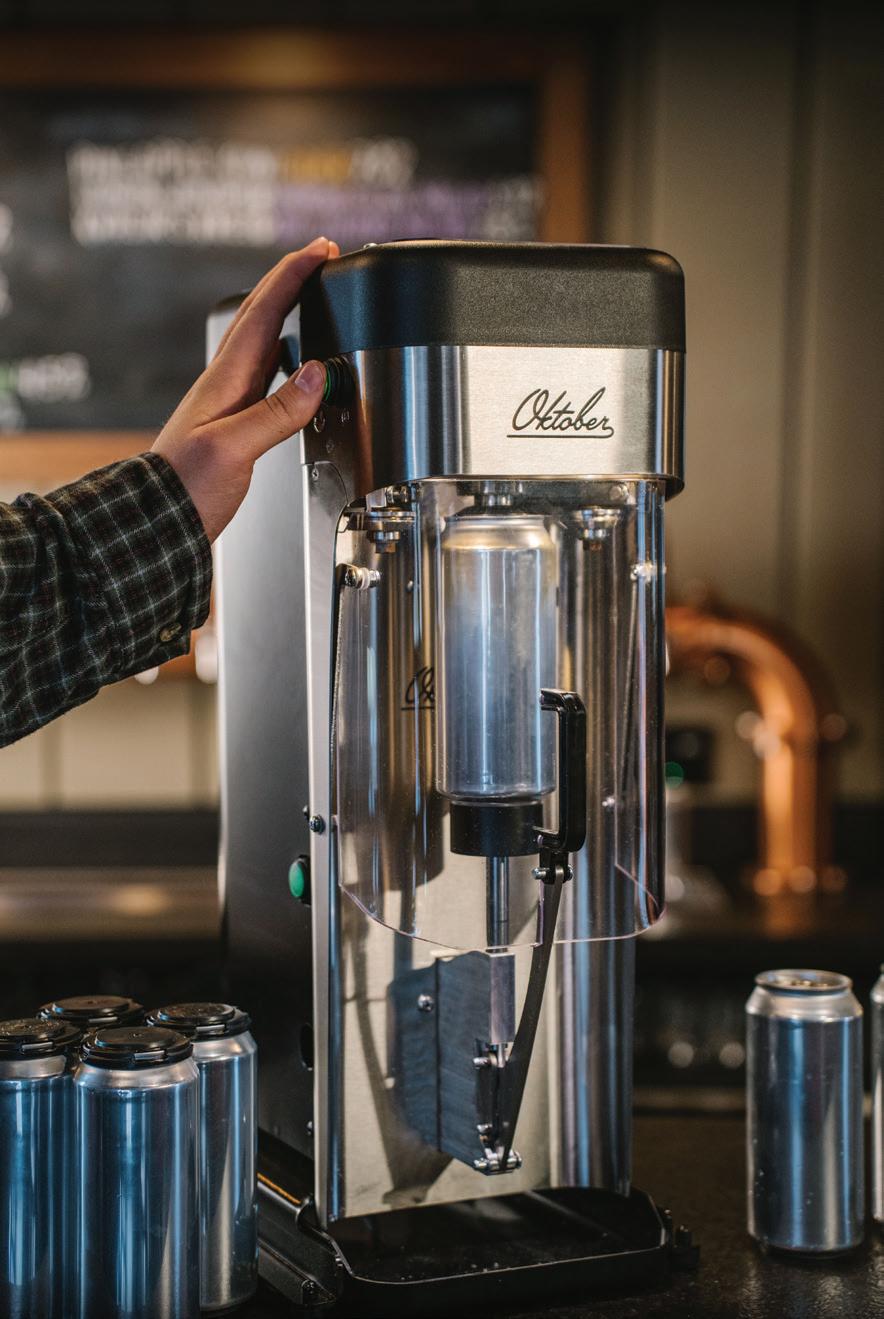
move their beer.
“We still hear from customers at trade shows, even though it was three years ago,” says Clint LeaTrea, one of the founders of Oktober. “We get people who stop and say, ‘You saved us. We put every drop of beer we made through your machine.’”
Oktober now has more than 10,000 can seamers in operation around the world, including with Founders Brewing Co. and Bell’s Brewery, two of Michigan’s largest beer producers.
“If you need to put a beverage in a can in small scale, that’s where we fit,” LeaTrea says.
From there, beer travels through one of the available distribution channels (see accompanying story on page 12 and the legislative update on page 14) until it winds up in consumers’ hands to be enjoyed, effortlessly.


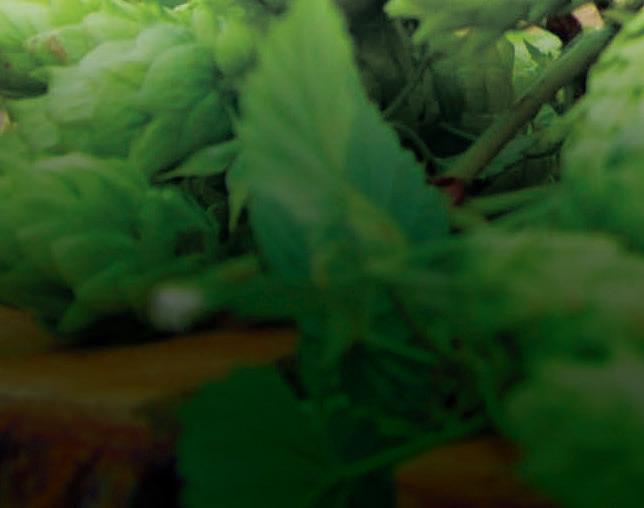
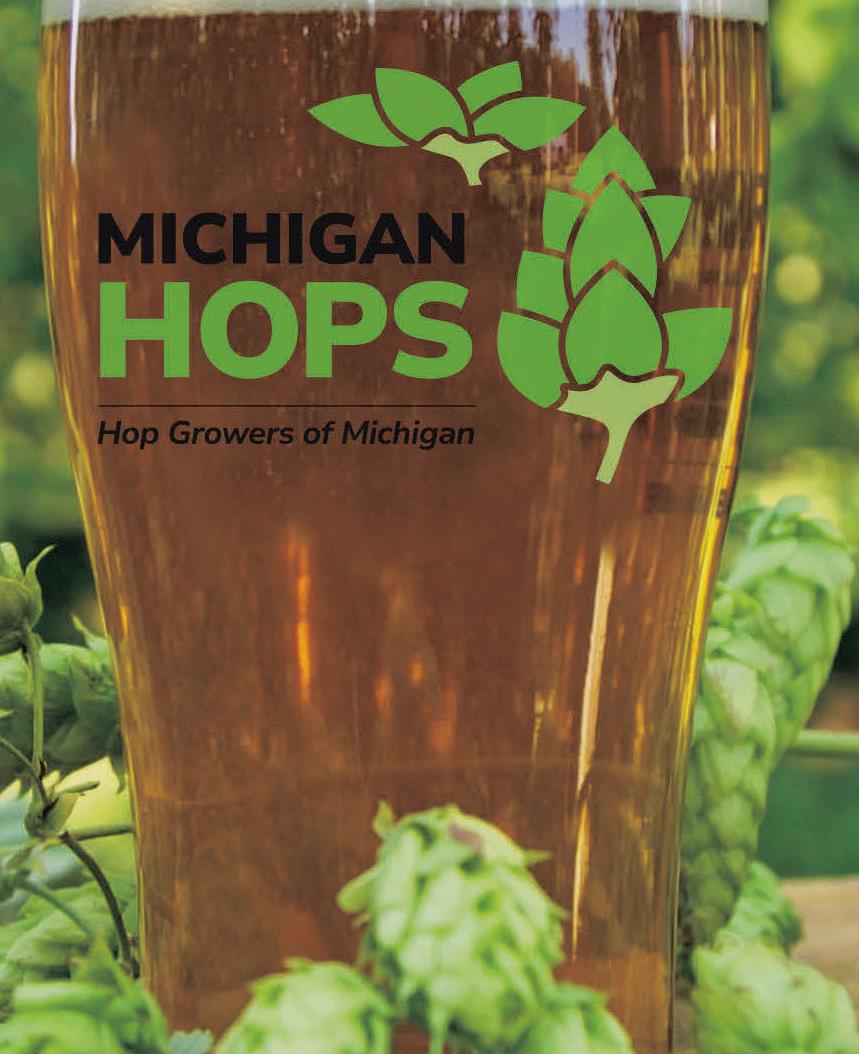






Serving beer directly to consumers in the taproom is the primary way many breweries sell their beer, but there are other distribution methods as well.
Brewers can self-distribute or partner with a licensed wholesaler, which transports a brewery’s beer to stores and restaurants. In July 2020, state lawmakers passed legislation raising the self-distribution capacity to 2,000 barrels of beer per year — double the previous maximum. Still, according to annual production numbers reported to the state in 2022, only 36 breweries produced 2,000 barrels or more that year.
Scott Graham, executive director of the Michigan Brewers Guild, says that although distribution to stores is “hard work” and “competitive,” he anticipates there will be “considerable growth in the volume of distributed beer.”
“The problem is the learning curve is so steep that the people who will experience the volume growth are going to be the ones with the most resources and the most time figuring out how to do it,” he says. “It’s harder and harder to break into, even if there is opportunity there. The team that has been doing it for 25 years is just better at it — more experienced and more likely to reap those benefits. That means the small guy has to focus on what he’s doing. Most of the breweries, by far, are very small breweries.”
Which style will sell the most?
Russell Springsteen, the owner-operator of Right Brain Brewery in Traverse City, has worked with a distributor since 2010. He’s continually evaluating his process.
“We aren’t going to put anything out into the market until we’ve proven it in our pub and we have the sales data to know that’s what the consumer really wants,” he says. “It takes about 12 to 15 months to develop a beer and a label. You’ve got to have a plan. You fail and it costs you money, and you go, ‘Oh, that didn’t work too well. Let’s move on.’ It’s a guessing game. Sometimes you’re a good guesser, and sometimes you’re not.”

Brewers looking to distribute their beers beyond the taproom have a lot of questions to consider: How far from my brewery am I willing to drive my kegs of beer for distribution? Will I have enough of my most popular beer to serve taproom guests? Do I want to package the beer in 12-ounce cans or 16-ounce cans? What label will convey the taste and beer style best? Do I have an art partner to help create the right look, or do I need to source that externally? Should I go with four-packs or six-packs? Which beer is my strongest?
Evolving drinking habits and different geographical preferences keep brewers on their toes as well.
“You’re always monitoring it,” Springsteen says. “It’s just part of your life. You’re constantly paying attention to what’s moving and what’s not.”
Michigan boasts many large distributors that have helped local beer reach every corner of the state.
One such distributor is family-owned M4 CIC, which focuses on Detroit, Grand Rapids, Kalamazoo, and Lansing. The Ypsilantibased company distributes beer from several Michigan breweries. Co-founder Mike Turriff says he speaks constantly with brewery owners who are debating whether to start distributing beer outside their taprooms. In some cases, they may have caught “lightning in a can” with a popular beer and need help growing its presence while it’s hot.
Ultimately, Turriff treats the distribution process — including helping a brewery owner determine whether to distribute at all — as a collaborative one.
“It’s extremely important to ask questions and find out what’s best for our supplier partners,” he says. “What they hire us to do is be an extension of their brewery.”
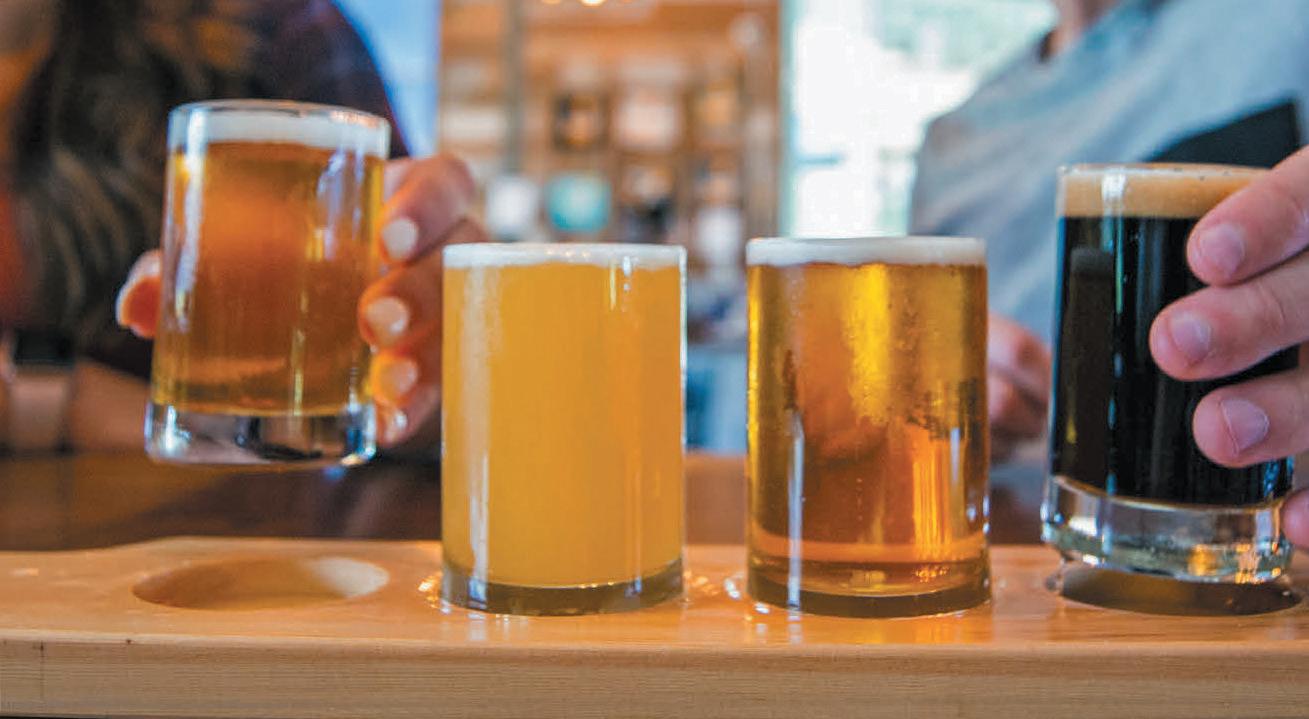






















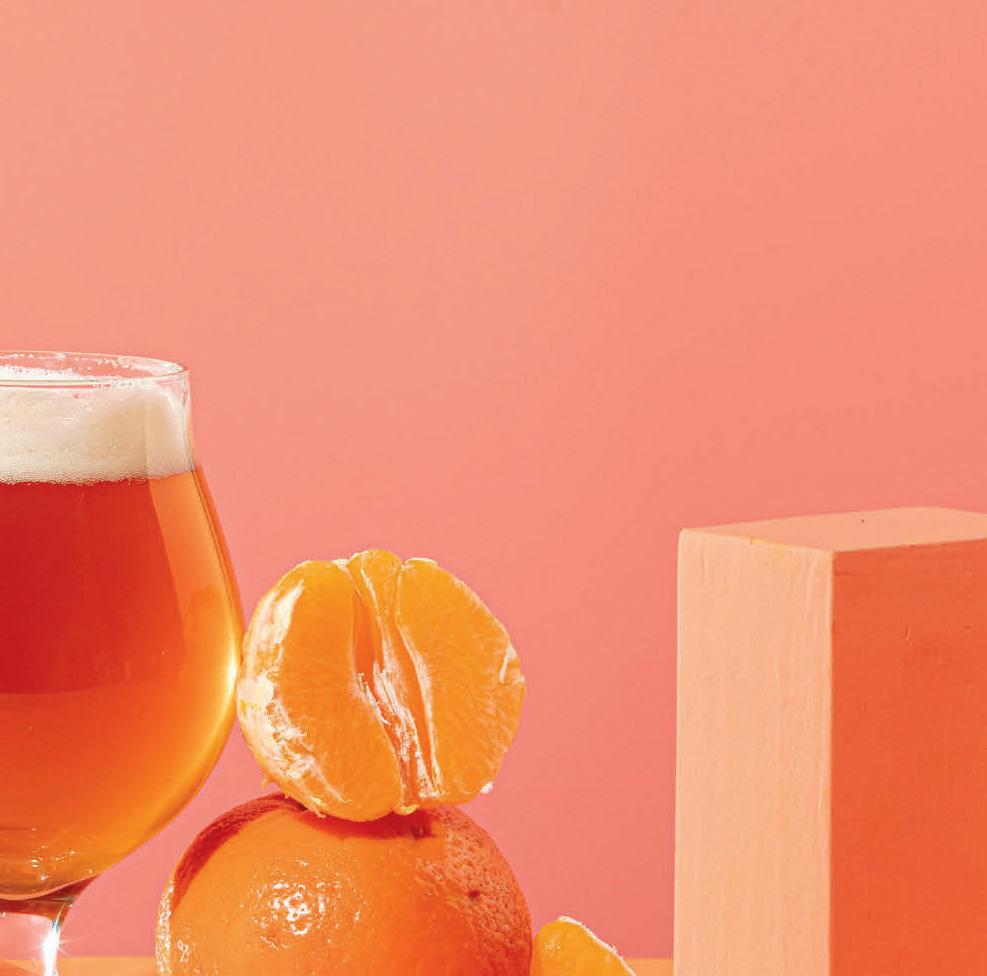








The Michigan Brewers Guild is advocating for changes to Michigan’s nonalcoholic beer sales and direct-to-consumer shipping


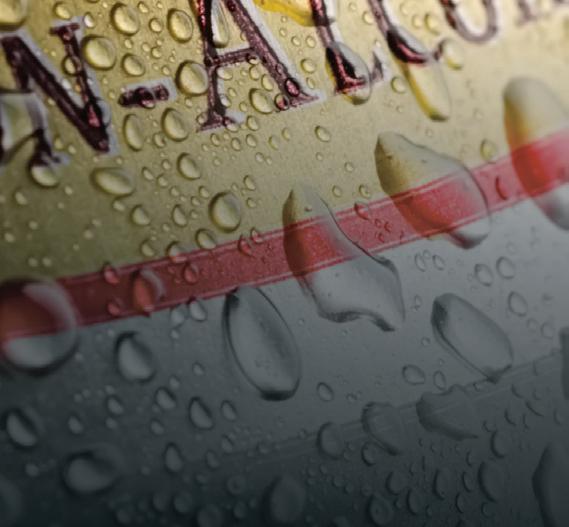
 By Brenda Sodt Marshall
By Brenda Sodt Marshall
In Michigan’s bustling taprooms and breweries, a complex legislative dance is unfolding.
Two issues in question are nonalcoholic beer sales and direct-to-consumer shipping. Guided by the Michigan Brewers Guild and operating within the state’s licensing framework and the traditional three-tier alcohol distribution system, breweries find themselves in a delicate balancing act, striving to overcome regulatory hurdles that impact their growth and survival.
The backbone of Michigan’s craft beer industry is the three-tier alcohol distribution system. This historical framework, designed to separate manufacturers and retailers, plays a pivotal role in shaping the industry’s landscape.
By creating distinct tiers for manufacturers, distributors, and retailers, policymakers eliminated the common and problematic pre-Prohibition system in which manufacturers controlled the entire supply chain: production, distribution, and sale. The three-tier system continues to benefit today’s alcohol market by

preventing large manufacturers from restricting small brewers’ access to retailers and allowing distributors and retailers to choose freely the brands they sell based on consumer preferences.
The Michigan Brewers Guild supports the three-tier system, as it opens up opportunities for breweries big and small to create jobs and grow. It also prevents big, multinational brewers from monopolizing the alcohol market, which would block out the state’s innovative craft brewers.
Within this structured system, however, lies a growing need for adaptability, particularly in the realm of direct-to-consumer beer shipping. While the system ensures healthy competition and market balance, it also presents unique challenges for small breweries seeking to expand their reach directly to customers.
EXPANDING REACH: THE STRUGGLE FOR DIRECTTO-CONSUMER BEER SHIPPING
With certain restrictions, small breweries in Michigan can selfdistribute a limited amount of beer to local bars, restaurants, and liquor stores. While breweries cannot package and ship beer directly to consumers via carriers like UPS, they can deliver
directly to consumers’ doorsteps using company vehicles, as mandated by Michigan law.
The Michigan Liquor Control Code outlines the selfdistribution regulations, specifying that a microbrewery may (under certain conditions) self-distribute beer to a retailer if it does not distribute more than 2,000 barrels of beer per year to retailers.
David Ringler, director of happiness at Cedar Springs Brewing Co. and past president of the Michigan Brewers Guild, says the current setup has been challenging for small brewers.
“Direct-to-consumer sales have been an issue both in Michigan and around the country for years, coming to a head during the pandemic shutdowns as small brewers found difficulty in getting their product into the hands of consumers,” Ringler writes via email to Michigan.TheGreatBeerState. magazine.
Wholesaler consolidation has also been a challenge, he says: “There has been wholesaler consolidation around the state that has magnified the issue, as some small brewers have seen their wholesale partners reduce (or even eliminate) their products or alternates from their portfolio. In some cases, it’s left a brewer with no access to market for new or exotic products that don’t see ‘volume’ sales, and a bottleneck for their ability to reach customers.”
In a Crain’sGrandRapidsBusiness article published last spring, Mitch Ermatinger, who co-founded Speciation Artisan Ales with his wife, Whitney, expressed the potential gamechanging impact of direct-to-consumer sales. “We’re struggling like pretty much every other brewery I know,” Ermatinger said. Direct-to-consumer sales “would be the thing that would easily tip the scales overnight.”
“Right now, [direct-to-consumer shipping is] in provisional discussions, letting everyone know what we are up to and why,” said Scott Newman-Bale, CEO of Short’s Brewing Co. and cochair of the Guild’s Government Affairs Committee, in the same article. “We do have some proposed language generated and have identified some people legislatively to work with.”
The Michigan Brewers Guild is advocating for legislative changes that would enable direct-to-consumer sales, which could alleviate these challenges small breweries face and provide them with new opportunities for growth and market access.
Parallel to the challenges of direct shipping, the growing demand for nonalcoholic beer introduces another dimension to Michigan’s legislative puzzle. Here, the same three-tier system, coupled with specific state laws, shapes how nonalcoholic beer can be sold and served in Michigan.
The growing interest in nonalcoholic beer is driven by a combination of factors, including changing consumer preferences, health consciousness, an expanding market in regions with stringent alcohol laws, and the influence of the sober-curious movement. These trends are anticipated to continue propelling the growth of the nonalcoholic beer market in the coming years.
Michigan law treats nonalcoholic beer like any other beer, requiring it to be sold through a licensed beer distributor before
it can be served in bars. Microbreweries and brewery taprooms, meanwhile, can only serve nonalcoholic beer produced on-site, which is impractical for most small breweries because it is cost prohibitive. In contrast, nonalcoholic spirits or wine can be purchased and sold to guests at these same establishments.
Efforts have been made to change the legislation to allow for the sale of nonalcoholic beer, but these have been met with resistance. The Michigan Liquor Control Commission defines beer based on its fermentation process, regardless of its alcohol by volume, which has led to challenges for breweries wanting to serve nonalcoholic beer in their taprooms. Despite the growing market for nonalcoholic drinks, including beer, the regulations and interpretations of the law have made it difficult for Michigan businesses to enter this market.
“The nonalcohol beer issue was one of my pet projects when I joined the Guild, and I have personally been pursuing this for nearly a decade,” Ringler says. “In our rural community, where most of Cedar Springs Brewing’s patrons arrive by car, we often receive requests from older guests, individuals on medication, designated drivers, and others who cannot or do not want to consume alcohol for various reasons. However, it is cost prohibitive for us to invest over $1 million in a lowvolume product. Additionally, there are currently no alternating proprietorship options available in Michigan. This presents a significant challenge for us in accommodating the demand for nonalcoholic beer in our taproom.
“The Guild has made efforts for simple legislative changes that would allow this safe beverage alternative and be consistent with other nonalcoholic beverages and federal standards, but their efforts have been blocked as a perceived threat to the three-tier system, which we all support.”
The Michigan Brewers Guild is working on these issues in two big ways.
First, the Guild’s Government Affairs Committee plays a crucial role in advocating for policies and initiatives that promote and protect the interests of Michigan’s craft brewing industry, supporting its continued growth and success.
Second, the Guild works to raise awareness of the Protect Michigan Craft Beer political action committee. The PAC is a group formed to support legislators who have demonstrated a desire to protect Michigan’s craft beer industry and who share similar core policy values as craft beer producers, retailers, and enthusiasts.
The PAC raises money from like-minded individuals who believe in Michigan’s craft beer industry and want to participate monetarily as a group with others in Michigan. The PAC’s financial resources come from donations.
“The reality is, anyone who supports ‘craft beer’ in Michigan and, in the future, wider access to small brewers really needs to support the PAC,” Ringler says. “It is a necessary resource for the Guild and our industry to mature and take the next step as an advocate for brewers and manufacturers in the state.”









Brewery members of the Michigan Brewers Guild are classified as a brewer, microbrewer, or brewpub based on their license as issued by the Michigan Liquor Control Commission. Some of the differences in these license types are described here.
A BREWER produces more than 60,000 barrels of beer annually and may sell beer to wholesalers for distribution to retail outlets such as restaurants, bars, and grocery and party stores. A brewer may also sell beer directly to consumers for consumption on-site or to go at their tasting rooms. If a brewer produces fewer than 120,000 barrels of beer per year, they may operate up to three tasting rooms; if they produce more, they may operate no more than two tasting rooms.
A MICROBREWER produces fewer than 60,000 barrels of beer annually and may sell to wholesalers for distribution to retail outlets such as restaurants, bars, and grocery and party stores. A microbrewer may also sell beer directly to consumers for consumption on-site or to go at their tasting rooms. A microbrewer producing between 30,000 and 60,000 barrels on-site annually can’t have more than three tasting rooms, while a microbrewer producing
fewer than 30,000 barrels in total annually may have unlimited tasting rooms. A microbrewer may deliver beer to consumers if it meets certain conditions, and a qualified microbrewer may self-distribute beer to licensed retailers under certain conditions.
A BREWPUB is licensed in conjunction with a retail license to serve alcohol such as that possessed by a bar or restaurant. Brewpubs must also be licensed food service establishments with at least 25% of sales coming from food and nonalcoholic beverages. They can sell their beer for consumption on-site or to go. Brewpubs are limited to six locations with common ownership, and they are allowed to produce up to a combined total of 18,000 barrels a year. A brewpub may deliver beer to consumers under certain conditions.
Note: A U.S. beer barrel contains 31 gallons of beer.
1


3GATOSBEER.COM


2 707 BREWERY CALEDONIA
FACEBOOK.COM/P/
707-WINERY-AND-

BREWERY-WHERE-CRAFT-MEETSCOMMUNITY-100054808568265/
3 ARCHIVAL






ARCHIVALBREWING.COM
4 ARVON BREWING CO.
GRAND RAPIDS
ARVONBREWINGCO.COM
5 ATWATER BREWERY IN GR
GRAND RAPIDS
ATWATERBEER.COM
6 BEER CHURCH
NEW BUFFALO
BEERCHURCHBREWING.COM
7 BELL’S BREWERY — COMSTOCK COMSTOCK BELLSBEER.COM
8 BELL’S BREWERY — ECCENTRIC CAFÉ & GENERAL STORE







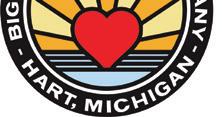
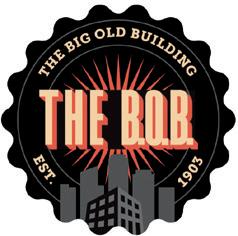








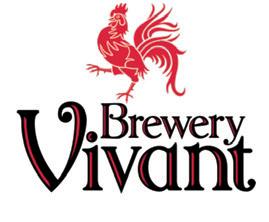
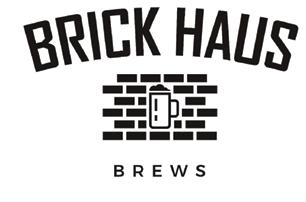



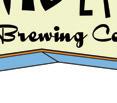


Cuisine
NonAlcoholic Options From Scratch
Weird Beer Weekend - april 19th - 21st
BFF Fest- Saturday, September 14th
(Barrel-aged, Farmhouse, and Firkin Fest!! Year Two!)
Wizard day - Friday, November 8th





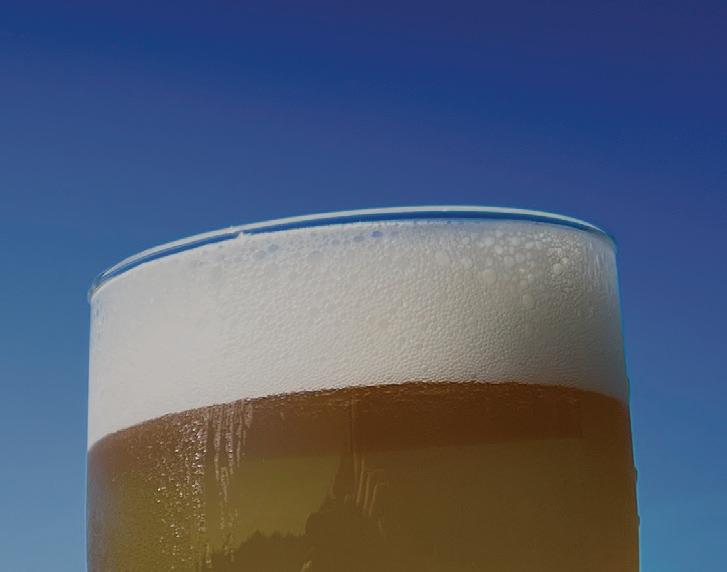
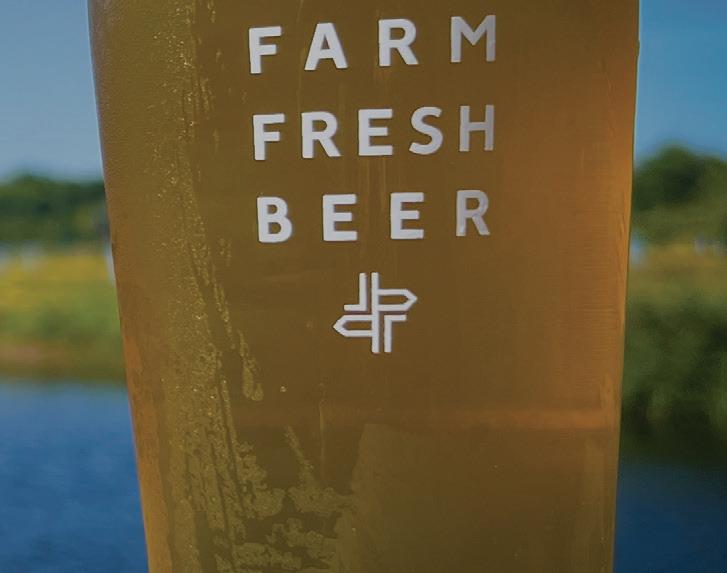
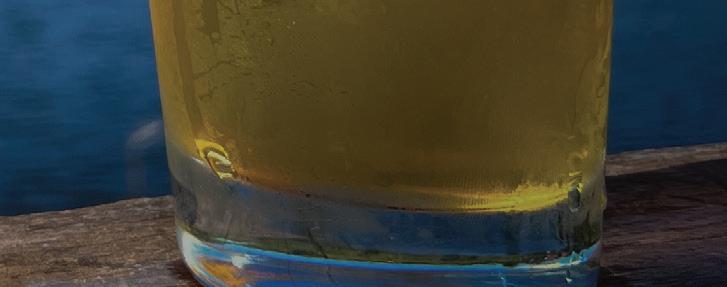
21 BROAD LEAF
+ SPIRITS



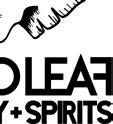


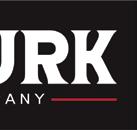
HAVEN
23 CEDAR SPRINGS
SPRINGS
24 CITY BUILT
RAPIDS
CO.
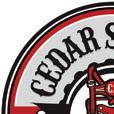
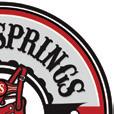
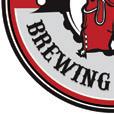

29 FETCH
CO.
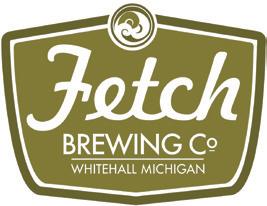
30 FLAT RIVER BREWING CO.
GREENVILLE
FLATRIVERBREWINGCO.COM
31 FOUNDERS
CO.
RAPIDS




32 FOUNTAIN HILL BREWERY
RAPIDS
37 HARBOR LIGHT BREWERY
SOUTH HAVEN
HARBORLIGHTBREWING.COM
38 HARMONY BREWING CO.
GRAND RAPIDS HARMONYBEER.COM
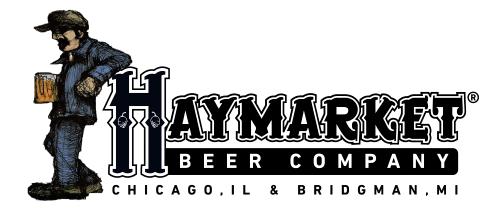
39 HAYMARKET BEER CO. BRIDGMAN HAYMARKETBEER.COM
40 HERONMARK ALLEGAN
HERONMARKFARMS.COM
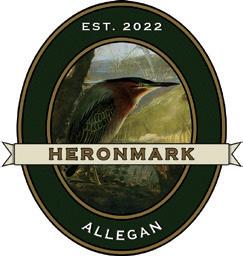
41 HUDSONVILLE PIKE 51 BREWING CO.
25 COOPERSVILLE
33 GRAND ARMORY BREWING
GRAND HAVEN
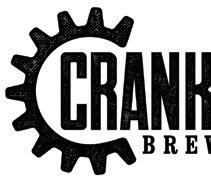
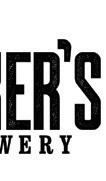
26 CRANKER’S BREWERY
RAPIDS
34 GRAVEL BOTTOM CRAFT BREWERY
HUDSONVILLE PIKE51.COM
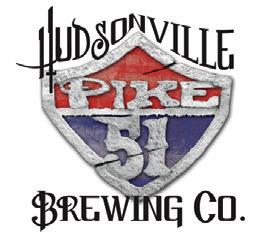
42 JOLLY PUMPKIN PIZZERIA & BREWERY
GRAND RAPIDS
JOLLYPUMPKIN.COM
27 DISTANT WHISTLE
28 DOSTER
CO.






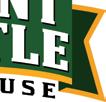
35 GULL LAKE DISTILLING CO.
GALESBURG
GLDISTILLING.COM

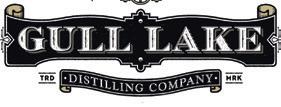
36 HANDMAP BREWING
BATTLE CREEK
HANDMAPBREWING.COM

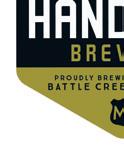
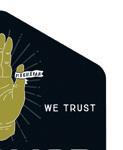

43 KALAMAZOO VALLEY COMMUNITY COLLEGE BREWERY
KALAMAZOO
KVCC.EDU/PROGRAMS/ SUSTAINABLE_FOOD_SYSTEMS

44 KÜSTERER BRAUHAUS
GRAND RAPIDS
GRBRAUHAUS.COM
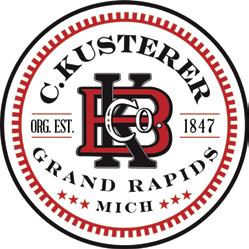



BEST ENJOYED WITH BEST ENJOYED WITH GOOD COMPANY. GOOD COMPANY.
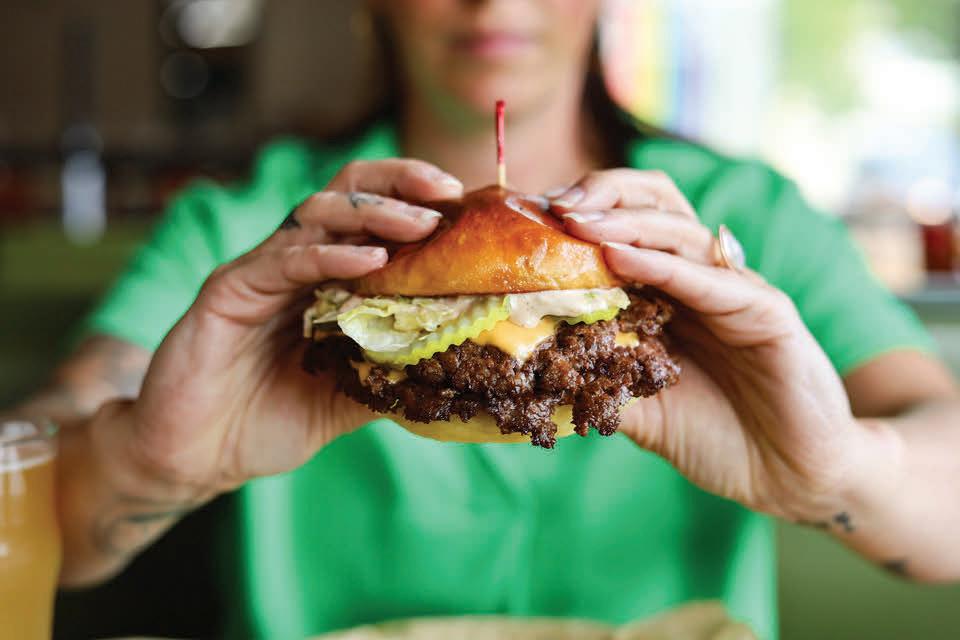

VISIT OUR THREE LOCATIONS VISIT OUR THREE LOCATIONS
Saugatuck
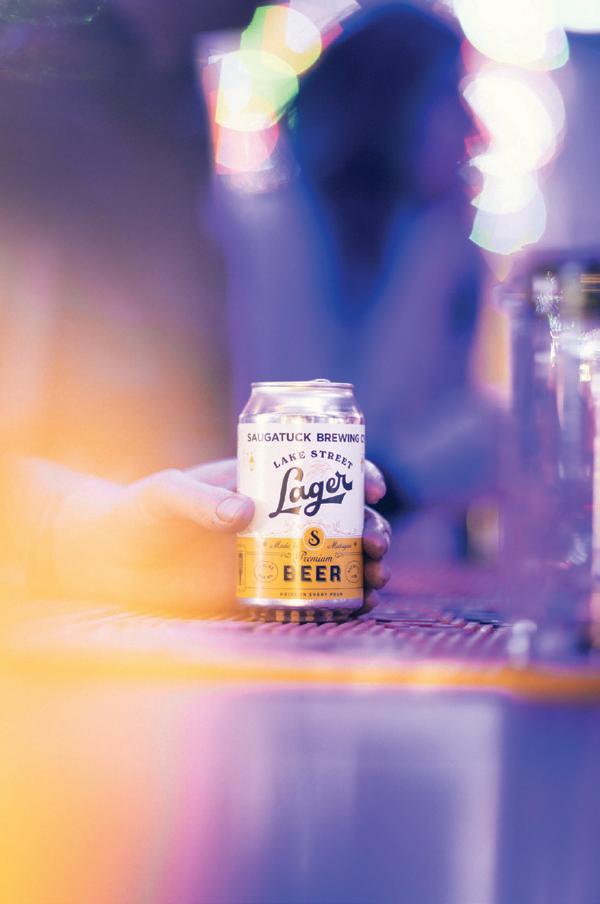
Saugatuck
Saugatuck
WWW.SAUGATUCKBREWING.COM



53 NEW HOLLAND BREWING — PRODUCTION FACILITY
LATITUDE 42
MURRAY STREET
54 NEW UNION BREWERY

61 ONE WELL BREWING KALAMAZOO

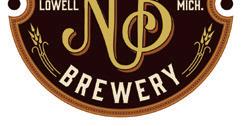
55 NILES BREWING CO.


56 NORTH GROVE


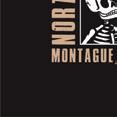
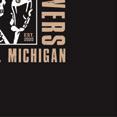


57 NORTH PIER BREWING CO.
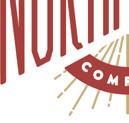
BENTON HARBOR NORTHPIERBREWING.COM
58 OAKESTOWN BREWERY GRANDVILLE


FACEBOOK.COM/P/OAKESTOWNBREWERY-100092143129248/
62 OPENROAD BREWERY

63 OUR BREWING CO.

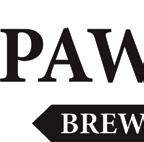
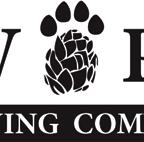
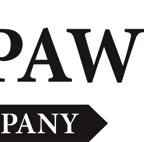
64 PAW PAW BREWING CO.
PAW
65 PERRIN BREWING CO.
PARK
66 PIGEON HILL BREWING CO.
51 NEW HOLLAND BREWING —
59 ODD SIDE ALES GRAND HAVEN ODDSIDEALES.COM
67 PINK BARREL CELLARS
RAPIDS
52 NEW HOLLAND BREWING — HOLLAND
60 OLD MILL BREWPUB & GRILL PLAINWELL OLDMILLBREW.COM

68 PRESIDENTIAL BREWING CO.





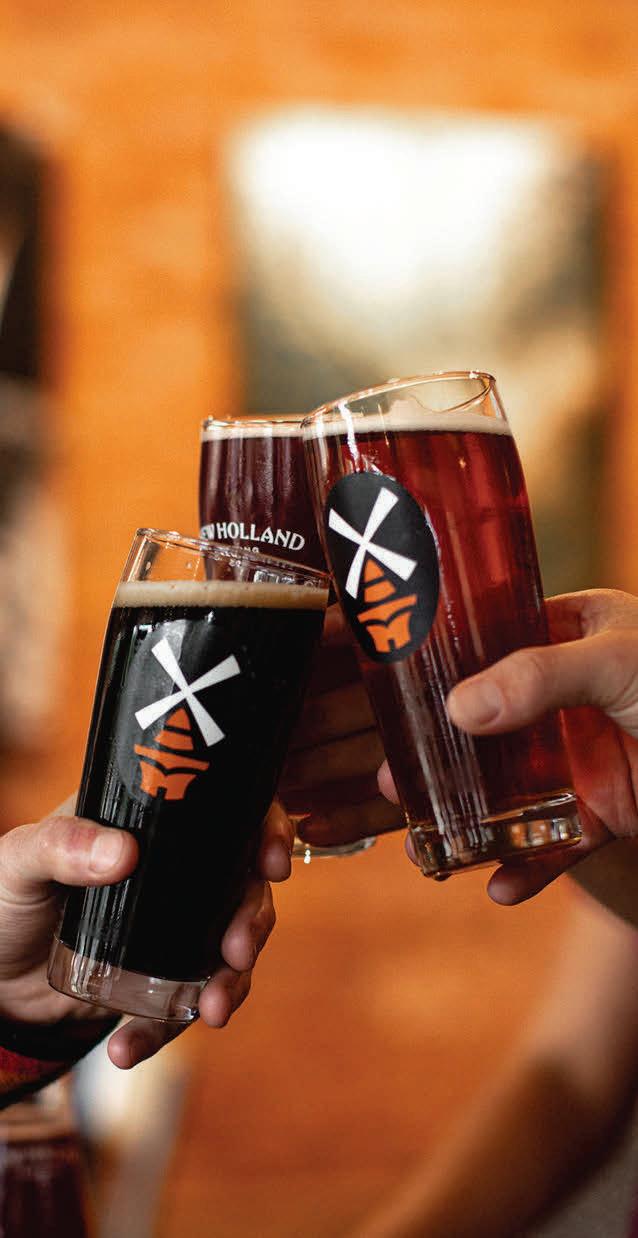















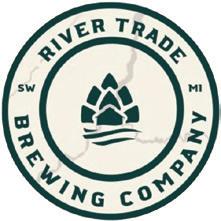




77 SAUGATUCK BREWING CO. — CRESTON TAPROOM

78 SAUGATUCK BREWING CO. — DOUGLAS
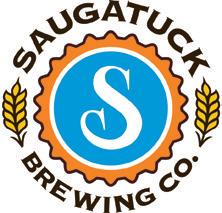
79 SAUGATUCK BREWING CO. — KALAMAZOO

85 SPECIATION ARTISAN ALES GRAND RAPIDS
SPECIATIONARTISANALES.COM
86 TANTRICK BREWING CO.
ALLEGAN
TANTRICKBREWING.COM
87 TERRITORIAL BREWING CO.
SPRINGFIELD
TERRITORIALBREWING.COM
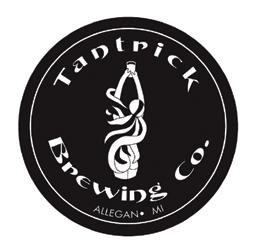

80 SAWYER’S BREWING CO.
SAWYERSBREWING.COM
81 SCHAENDORF BREWING CO.
ALLEGAN
SCHAENDORFBREWINGCO.COM


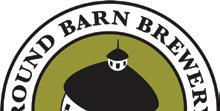

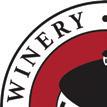



ROUND BARN TASTING ROOM — UNION PIER
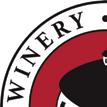
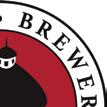




SAWYERS
88 TEXAS CORNERS BREWING CO.
KALAMAZOO
TEXASCORNERSBREWING.COM
89 THE LIVERY BENTON HARBOR LIVERYBREW.COM


82 SILVER HARBOR BREWING CO.
ST. JOSEPH
SILVERHARBORBREWING.COM
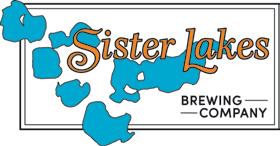
83 SISTER LAKES BREWING CO. DOWAGIAC
SISTERLAKESBREWING.COM
84 SOCIBOWL BY PIGEON HILL
MUSKEGON SOCIBOWL.COM
90 THE MITTEN BREWING CO. — GRAND RAPIDS
GRAND RAPIDS
MITTENBREWING.COM
91 THE MITTEN BREWING CO. — SAUGATUCK
SAUGATUCK
MITTENBREWING.COM/ SAUGATUCK
92 THIRD NATURE BREWING CO.
ROCKFORD
THIRDNATUREBREWING.COM






 by Fred Bueltmann
by Fred Bueltmann

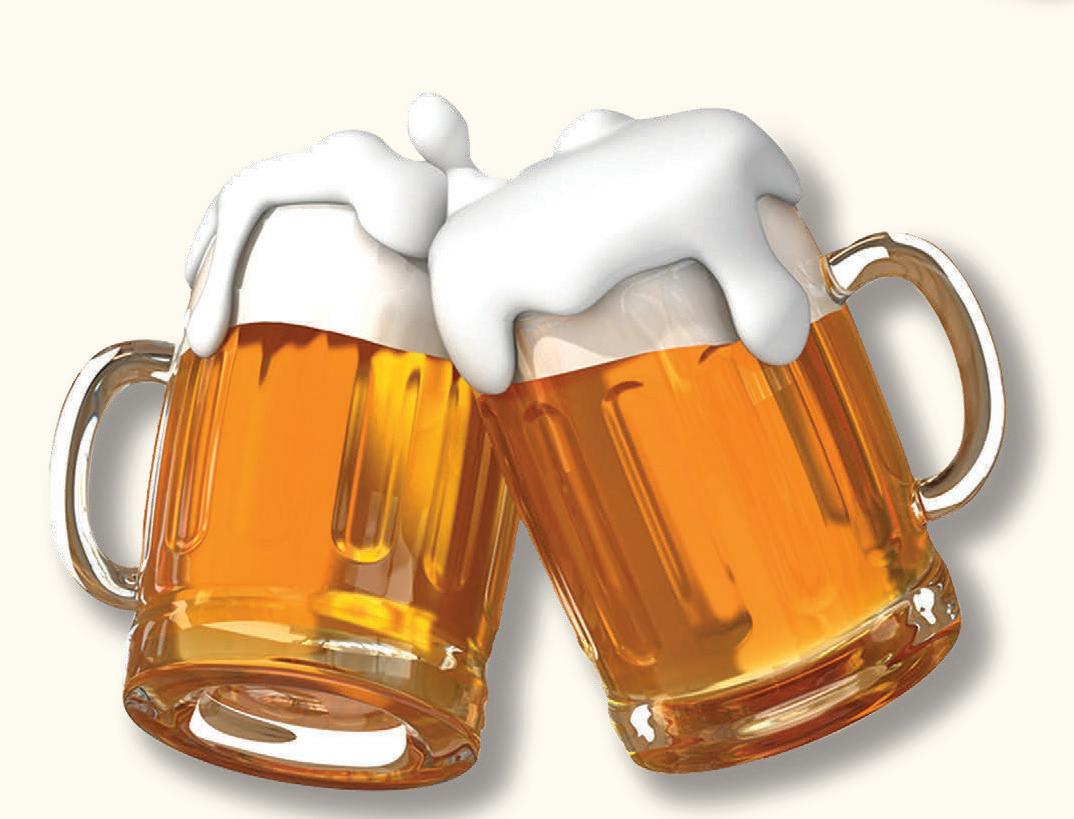


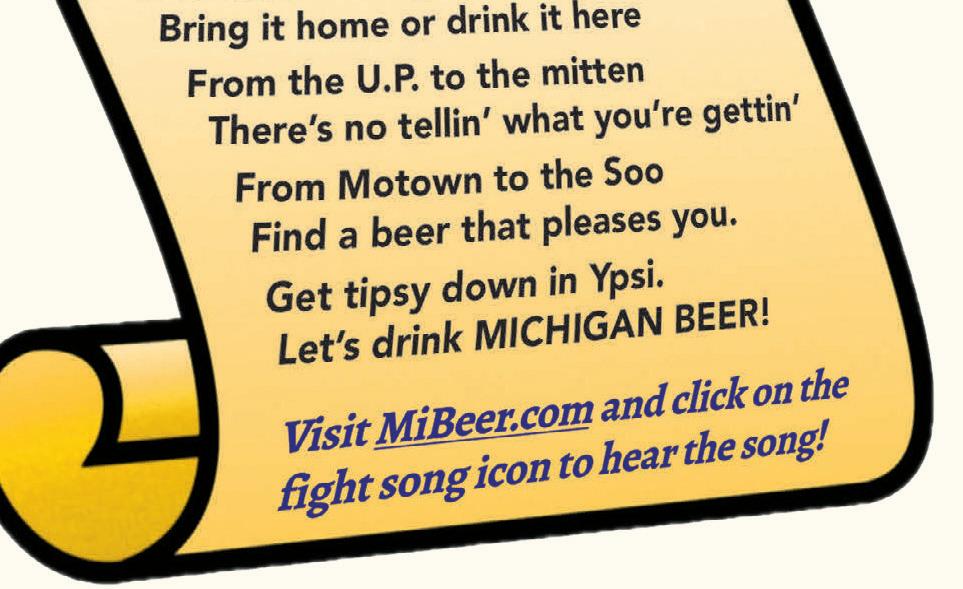
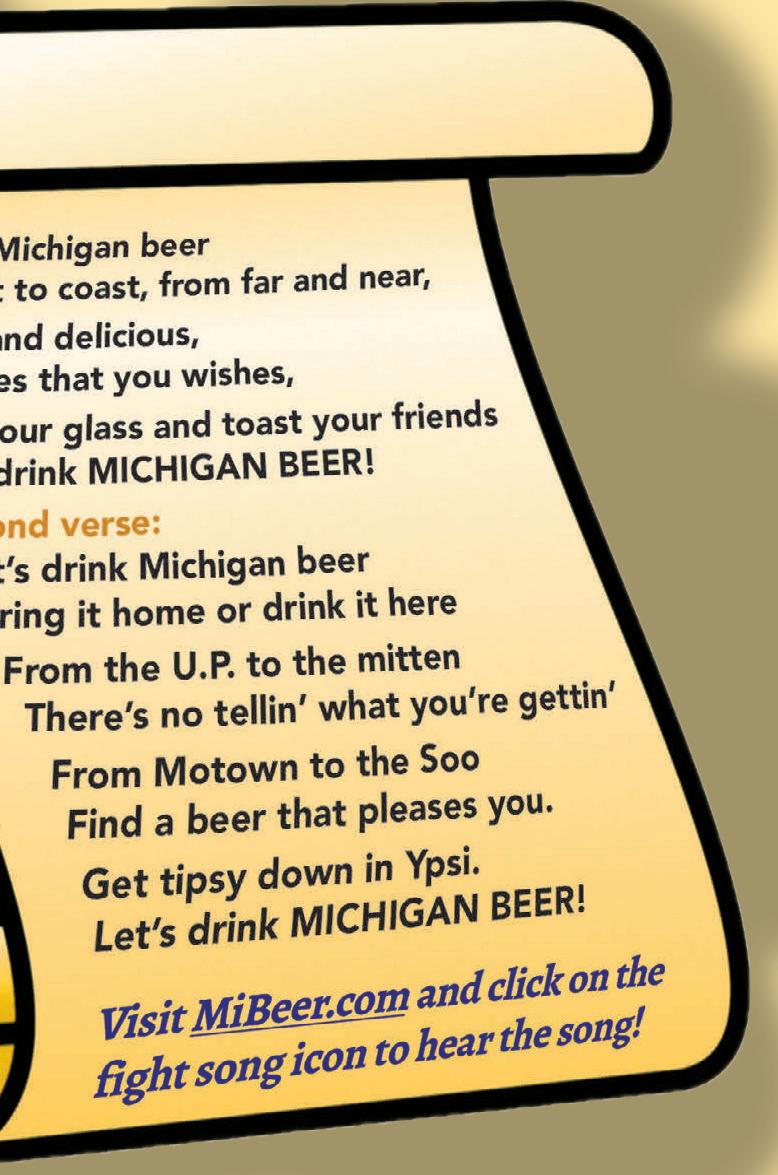

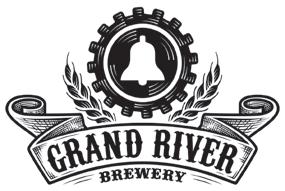







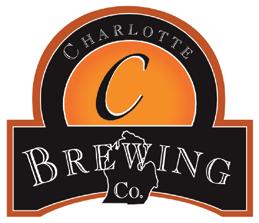

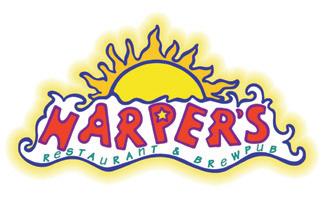
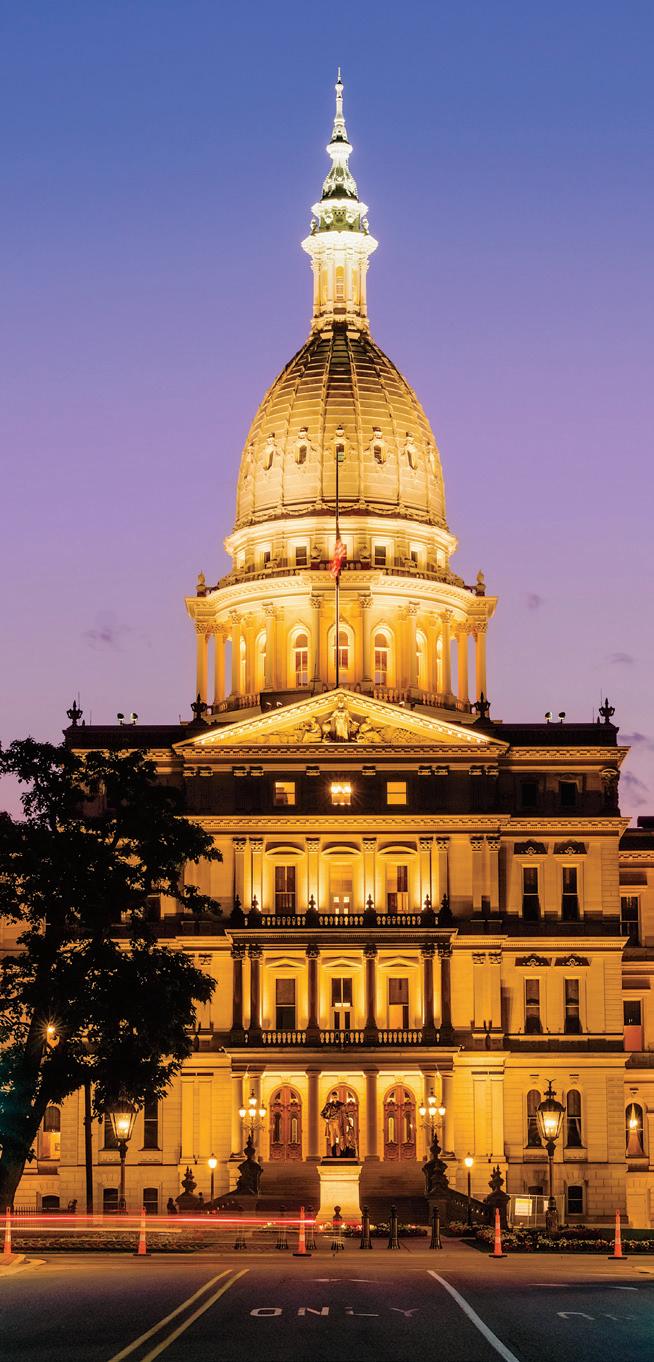








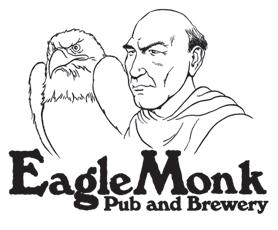



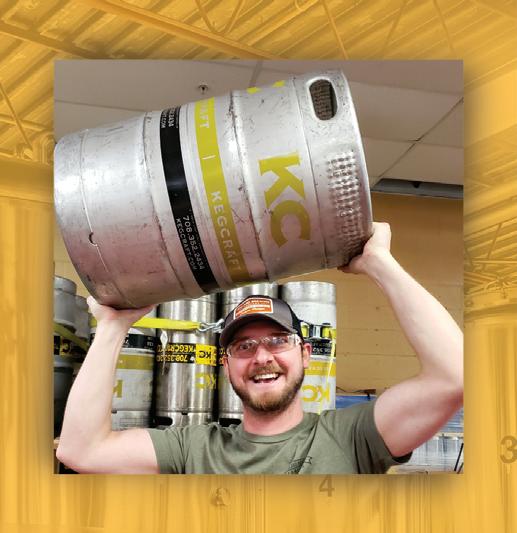
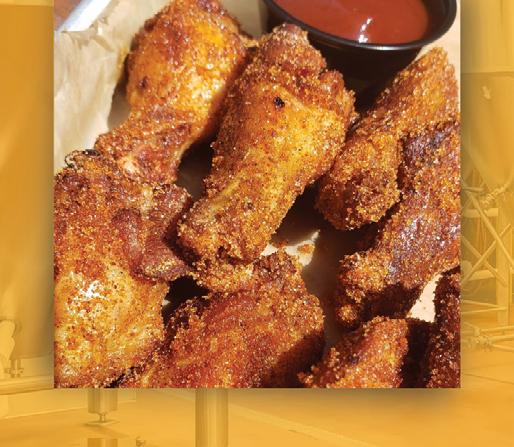

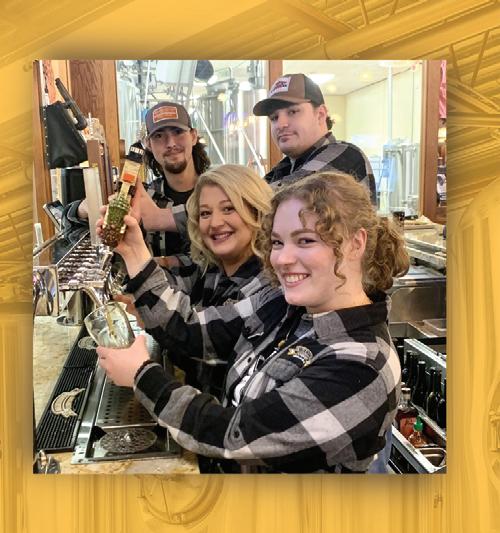




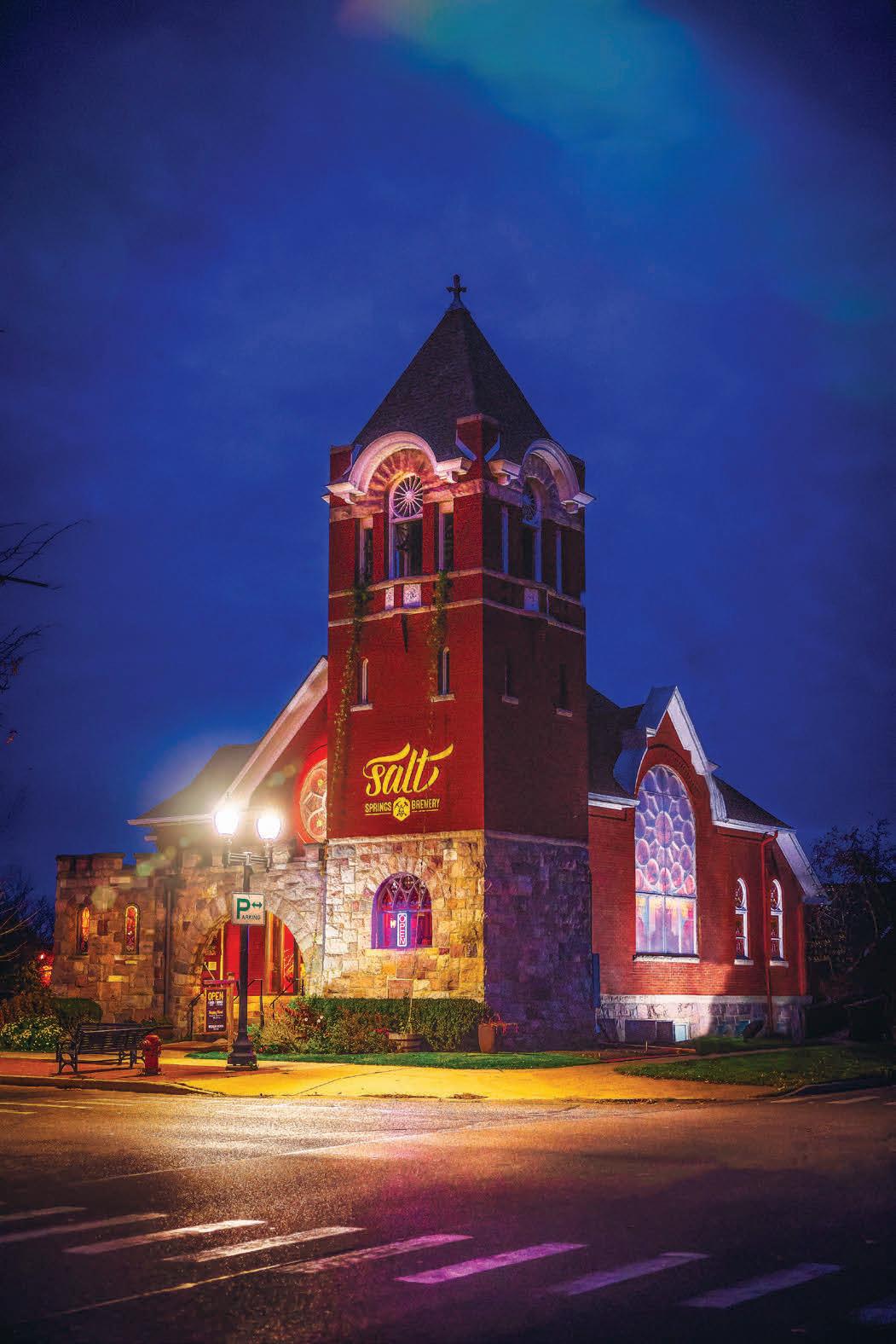







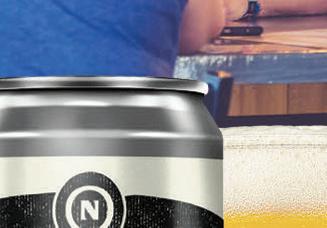
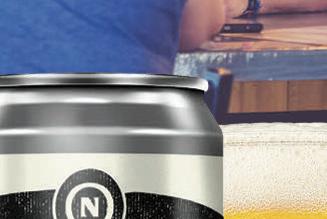










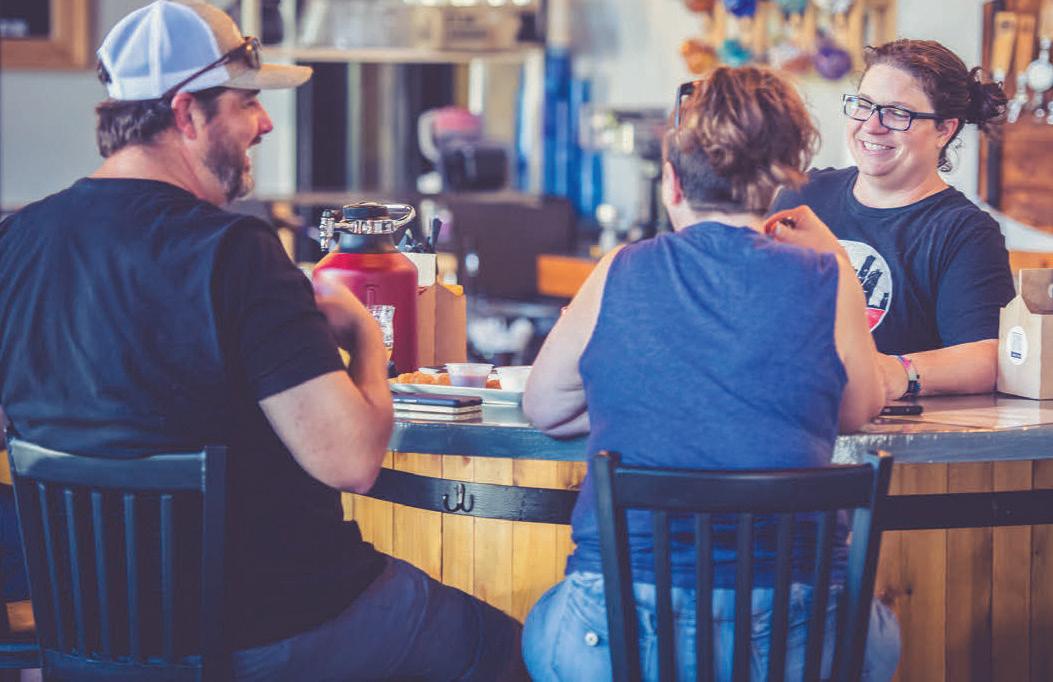








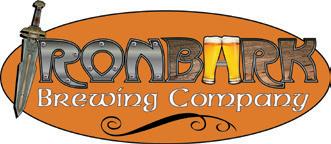






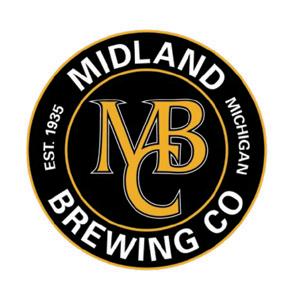














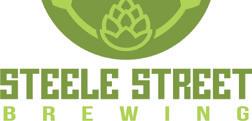


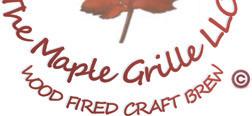






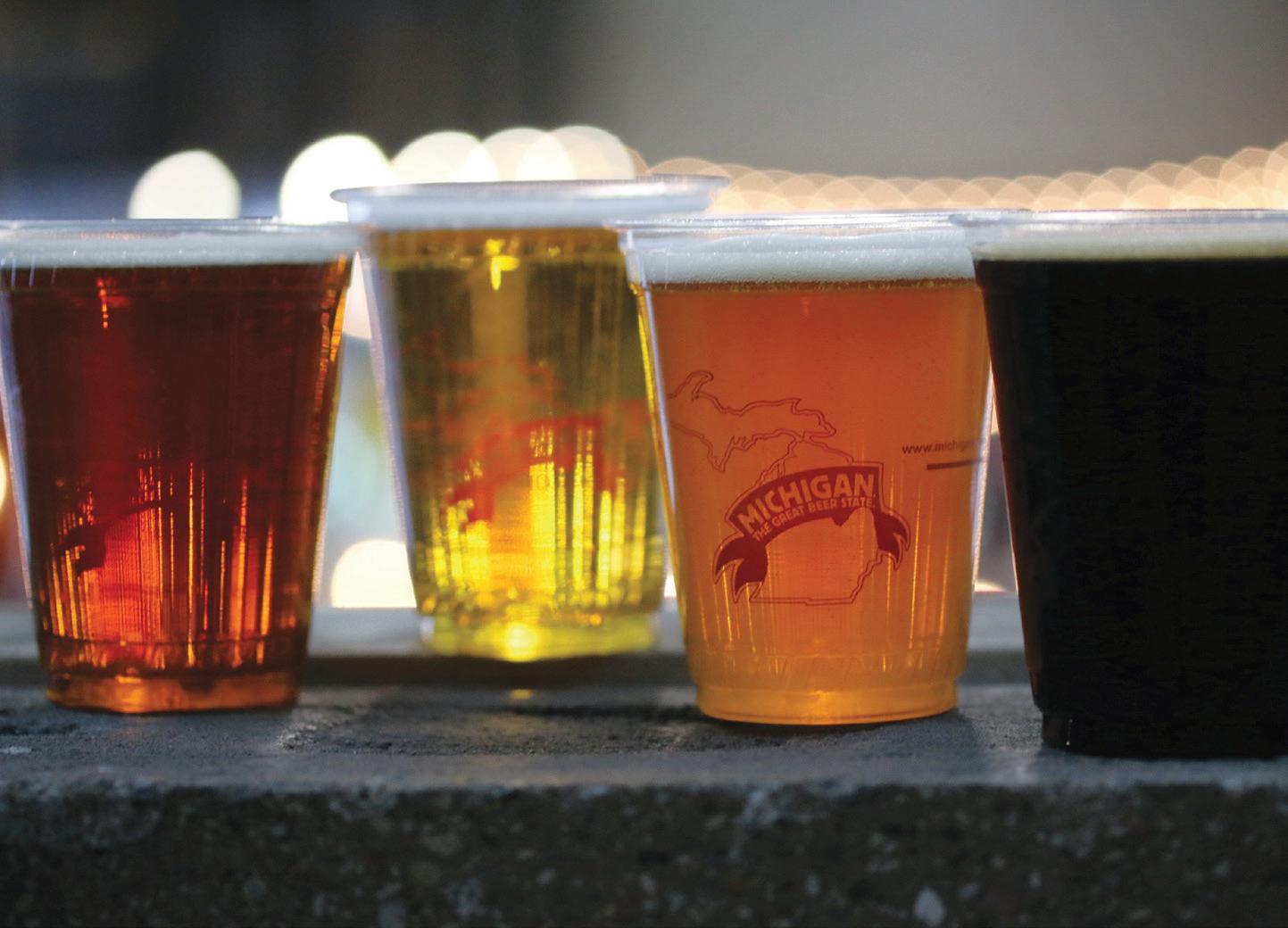







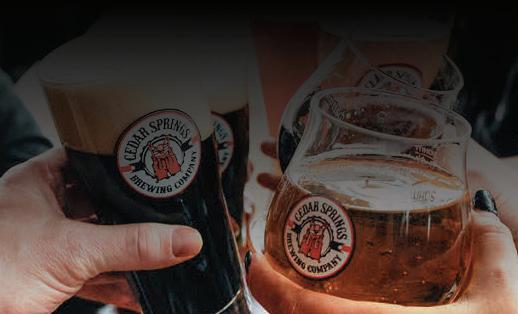








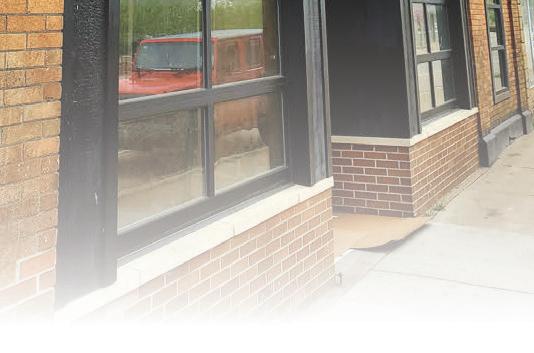
The Sustainable Brewing Program at Kalamazoo Valley is designed to prepare students for a wide array of technical and entrepreneurial careers in brewing by focusing on sustainability in operations, quality in production and leadership in defining an industry. If you are looking for a pathway into an exciting and dynamic industry, your brewing future is here at Kalamazoo Valley.




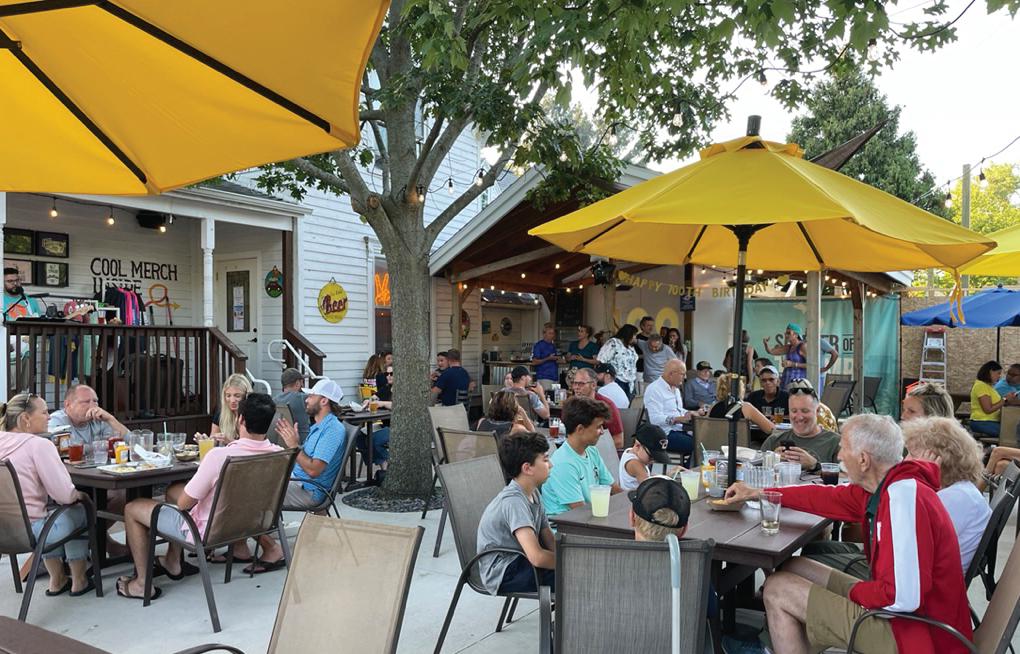
Experience a journey down M-25 filled with food, drinks, and memories. Our outdoor patio welcomes pets and features 28 Michigan beers, delicious food, signature cocktails, and live entertainment including live music, music bingo, and comedy shows. Make unforgettable memories with friends and family at our inviting gathering place.

You

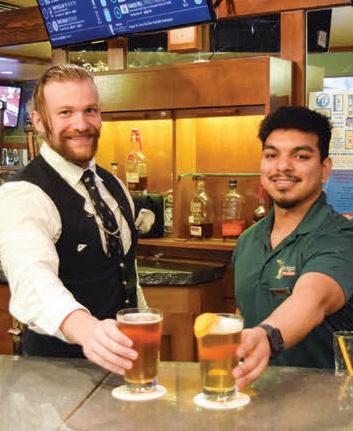
Happy Meal Night
pound
50
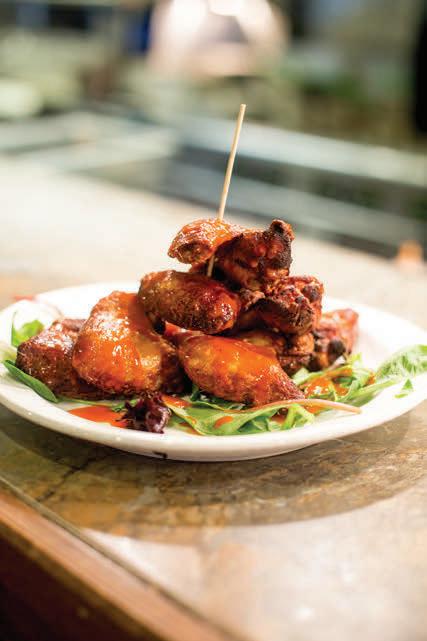











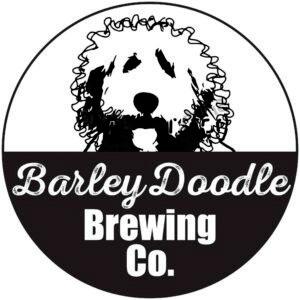

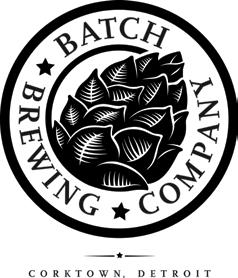

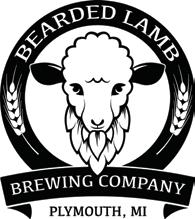

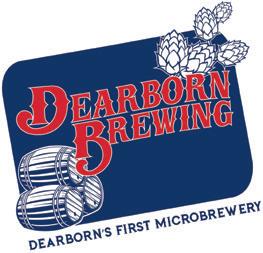
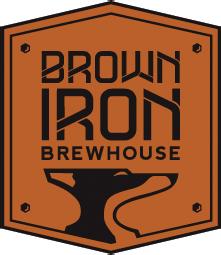











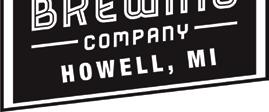
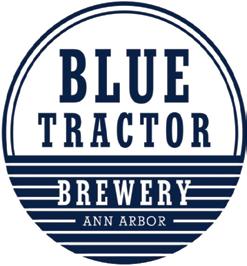




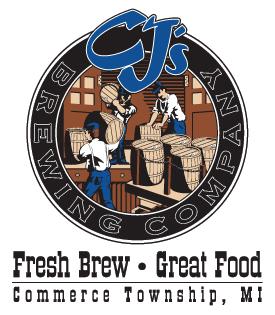





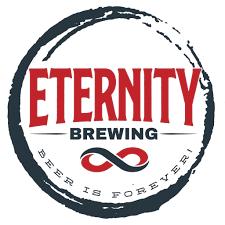
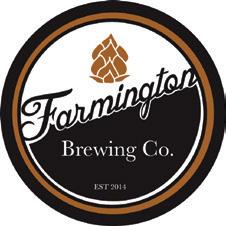
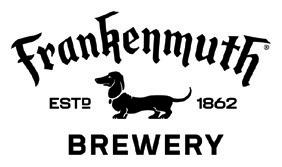

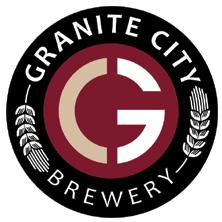
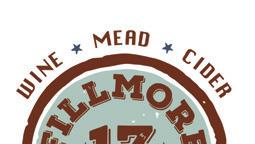
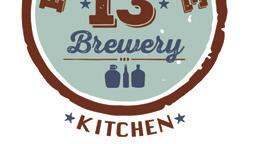
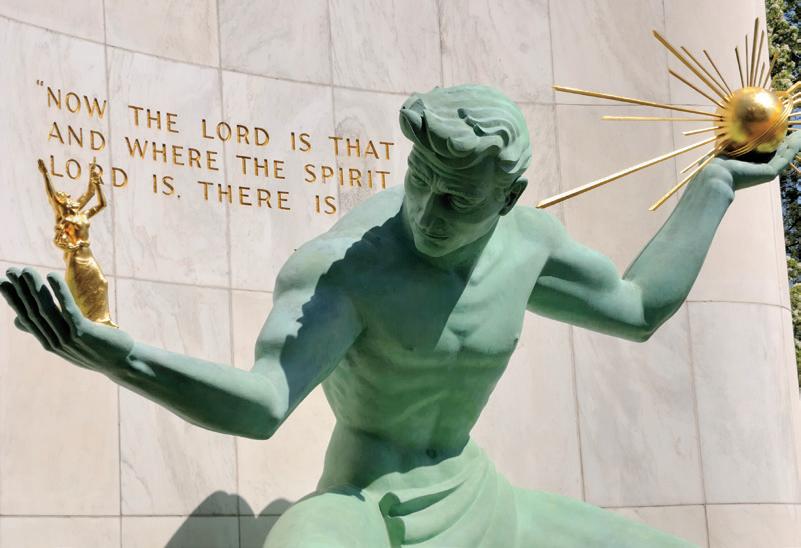
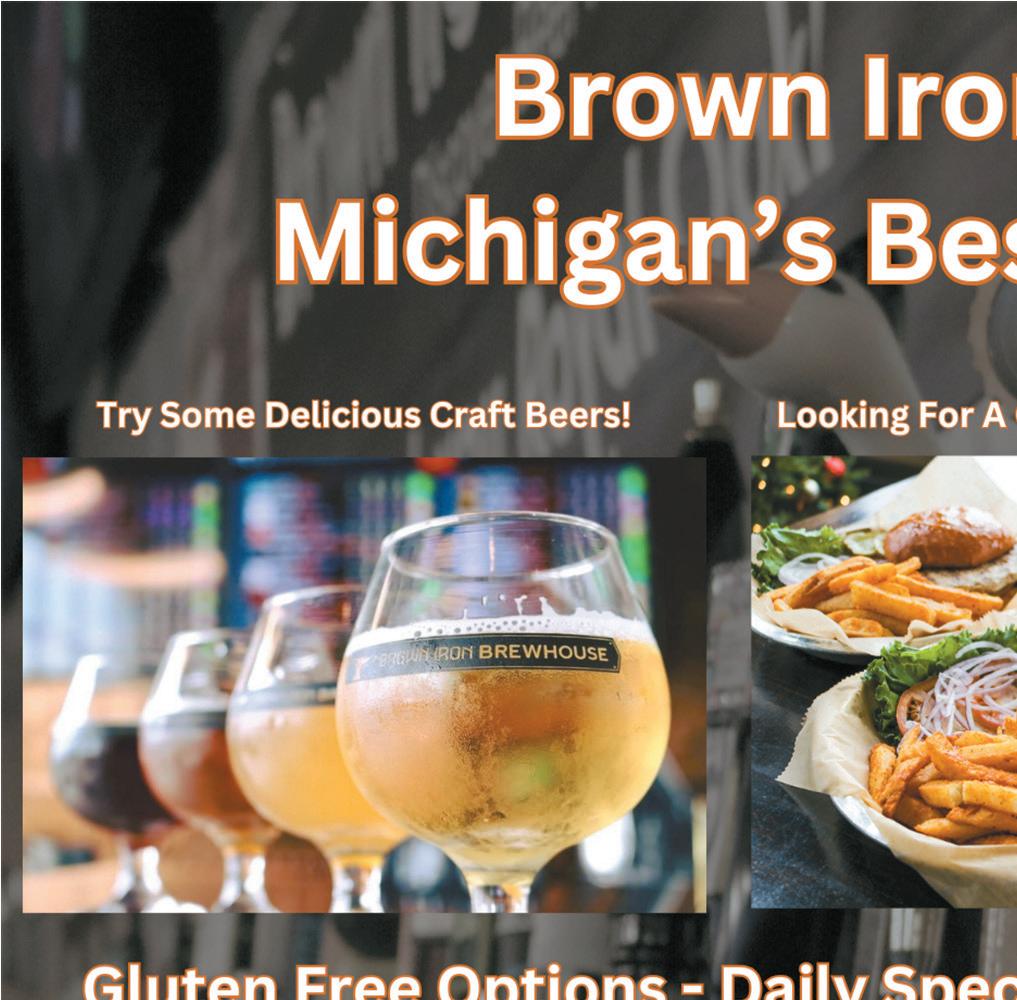



170

171 GRAVCAP

172 GREAT BARABOO
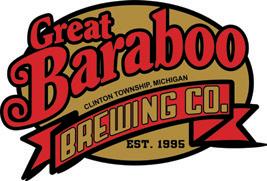
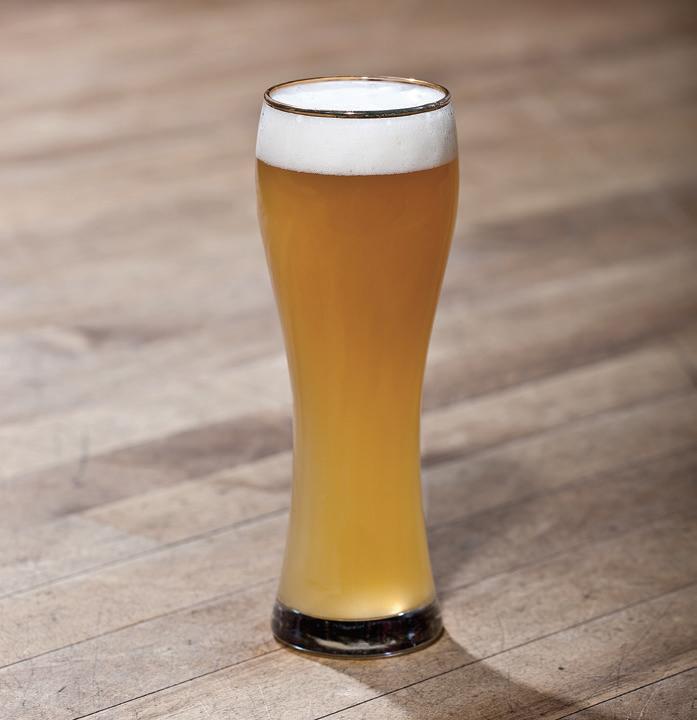
178 HOMEGROWN
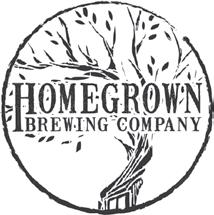
173 GREAT WHITE
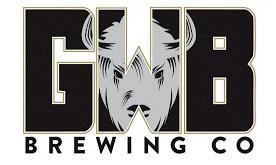
179 HOMES BREWERY

174 GRIFFIN CLAW
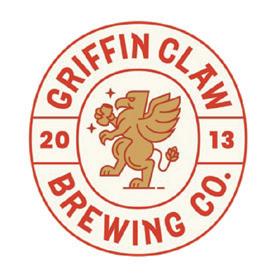
180 HOMES CAMPUS

GRIFFINCLAWBREWINGCOMPANY.COM
175 GRIFFIN CLAW

GRIFFINCLAWBREWINGCOMPANY.COM


176 GRIZZLY PEAK BREWING CO.
181 JAMEX
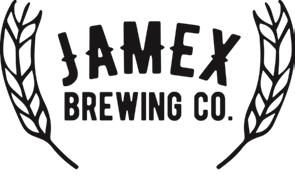
184 JOLLY PUMPKIN
JOLLYPUMPKIN.COM
185 KICKSTAND BREWING CO. COMMERCE TOWNSHIP KICKSTANDBREWINGCO.COM
186 KUHNHENN BREWING — CLINTON TOWNSHIP
CLINTON TWP.
KUHNHENN.BEER
187 KUHNHENN BREWING — WARREN
KUHNHENN.BEER
188 LILY’S SEAFOOD GRILL & BREWERY
OAK
LILYSSEAFOOD.COM
189 LOADED DICE BREWERY
LOADEDDICEBREWERY.COM



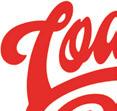


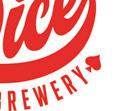
182 JOLLY PUMPKIN
ANN ARBOR
ANN ARBOR JOLLYPUMPKIN.COM
190 MOTHFIRE BREWING CO.
ANN ARBOR MOTHFIRE.COM

177 HARTLAND

183 JOLLY PUMPKIN ARTISAN ALES
191 MOTOR CITY BREWING WORKS
MOTORCITYBEER.COM






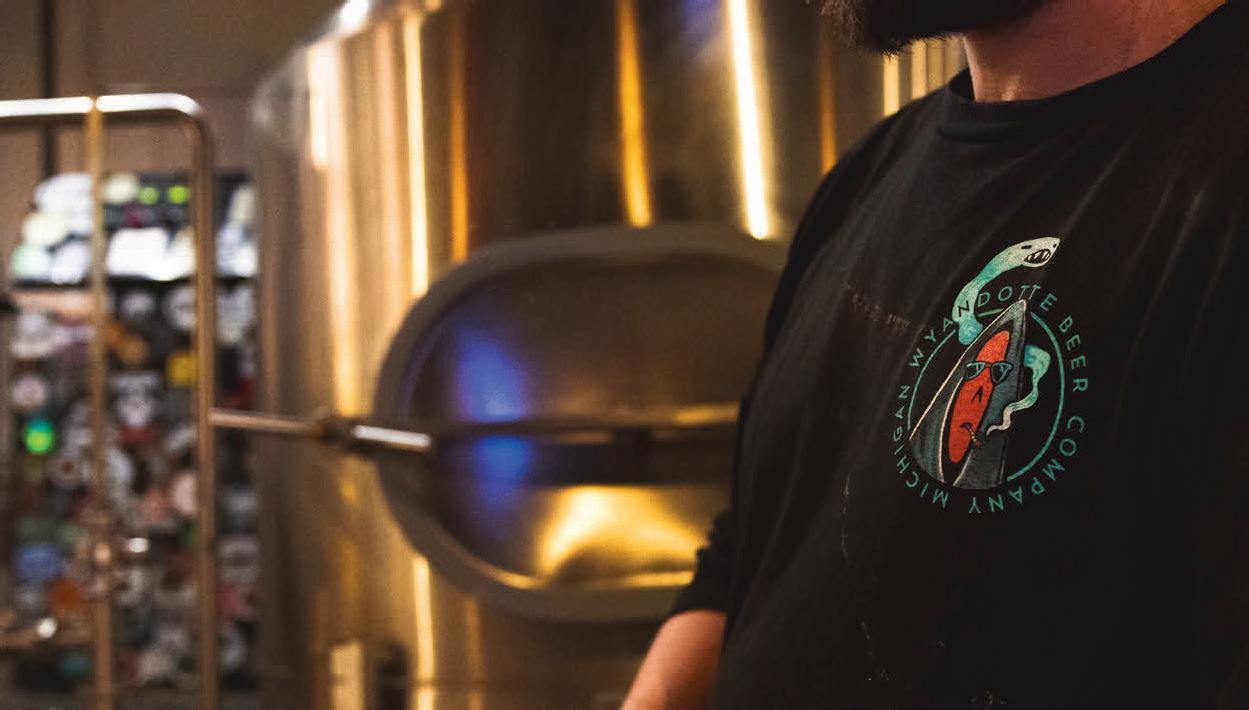




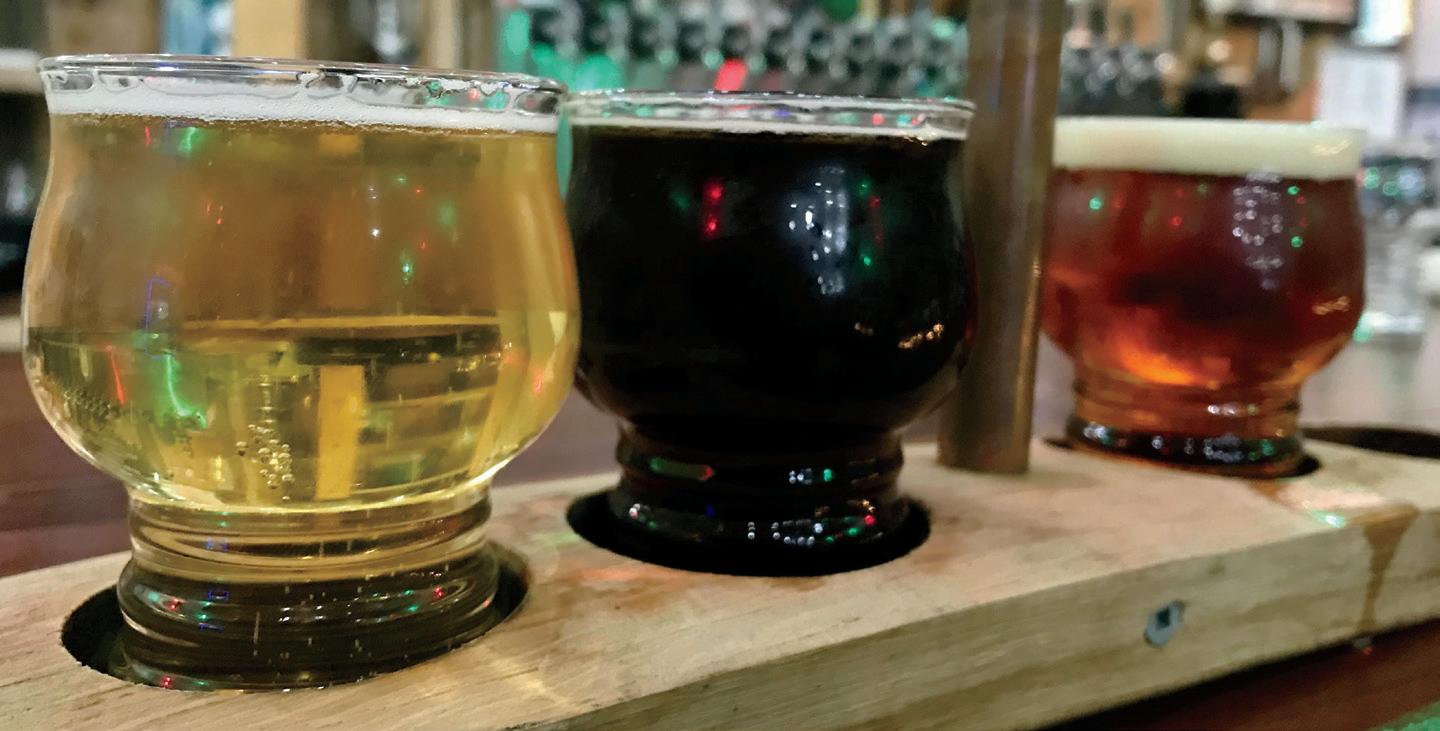
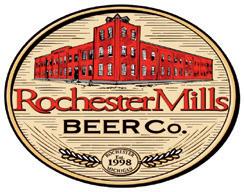











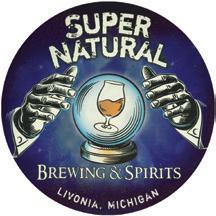








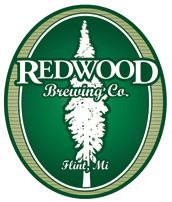







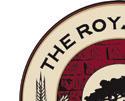

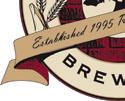
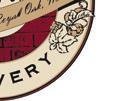
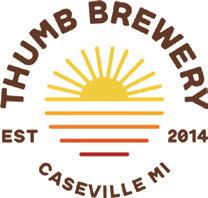
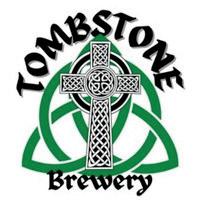
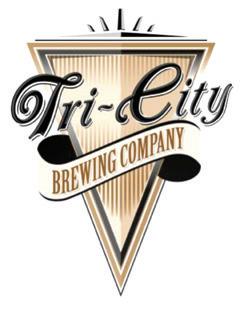

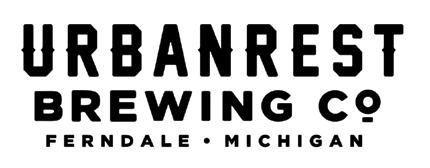






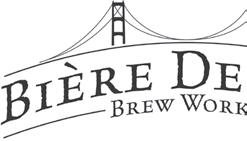






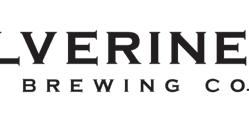







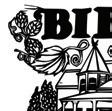
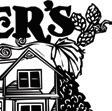

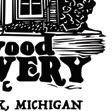







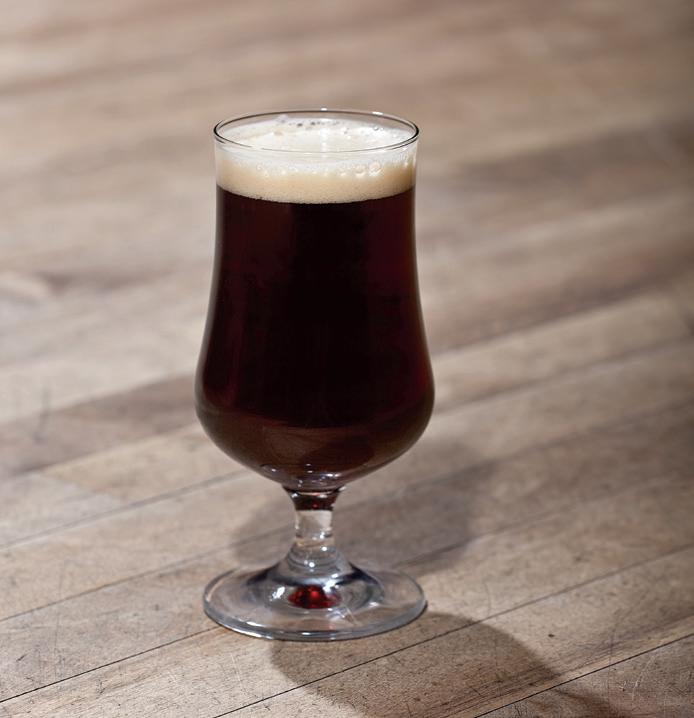




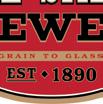

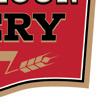


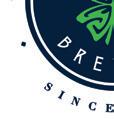




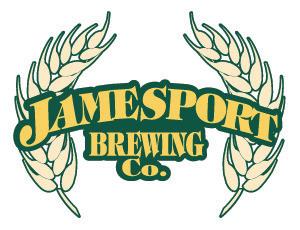


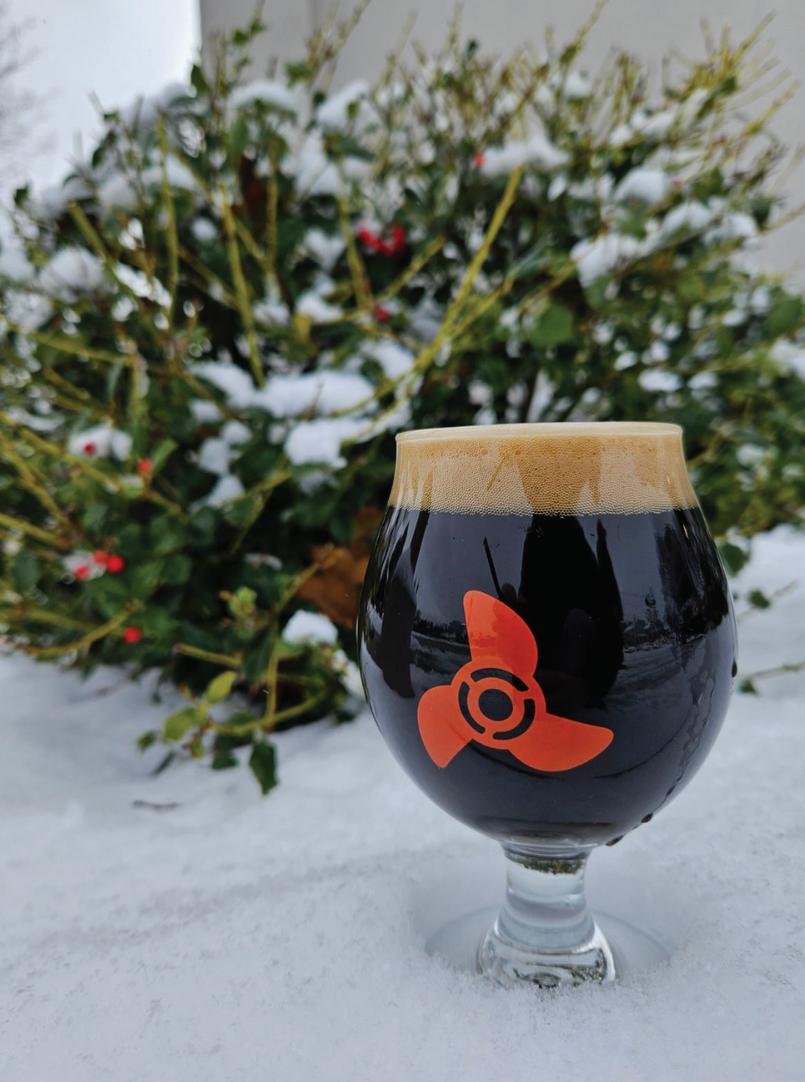

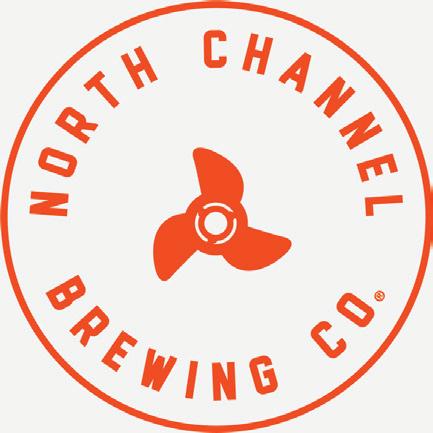
241 LOCO BOYS


242 LUDINGTON BAY



249 POND HILL FARM HARBOR SPRINGS PONDHILL.COM
256 ST. AMBROSE CELLARS



257 STIGGS BREWERY & KITCHEN



243 MACKINAW TRAIL WINERY & BREWERY

244 MIDDLECOAST
250 RARE BIRD BREWPUB TRAVERSE CITY RAREBIRDBREWPUB.COM
251 RIGHT BRAIN BREWERY TRAVERSE CITY




245 NORTH CHANNEL BREWING CO.
252 SHORT’S BREWING CO.


258 STONE HOUND BREWING CO.


259 STORMCLOUD BREWING CO.




260 STORMCLOUD BREWING CO. — PARKVIEW




246 NORTH PEAK
253 SHORT’S BREWING CO. — PULL BARN
RAPIDS

254 SILVER SPRUCE BREWING
TRAVERSE CITY
SILVERSPRUCEBREWING.COM

261 THE FILLING STATION MICROBREWERY
262 THE HIGHWAY BREWING CO. WEST BRANCH HIGHWAYBREWINGCO.COM

248 PETOSKEY BREWING
VILLAGE
VILLAGE

255 SNOWBELT BREWING CO.




263 THE MITTEN BREWING CO. — NORTHPORT












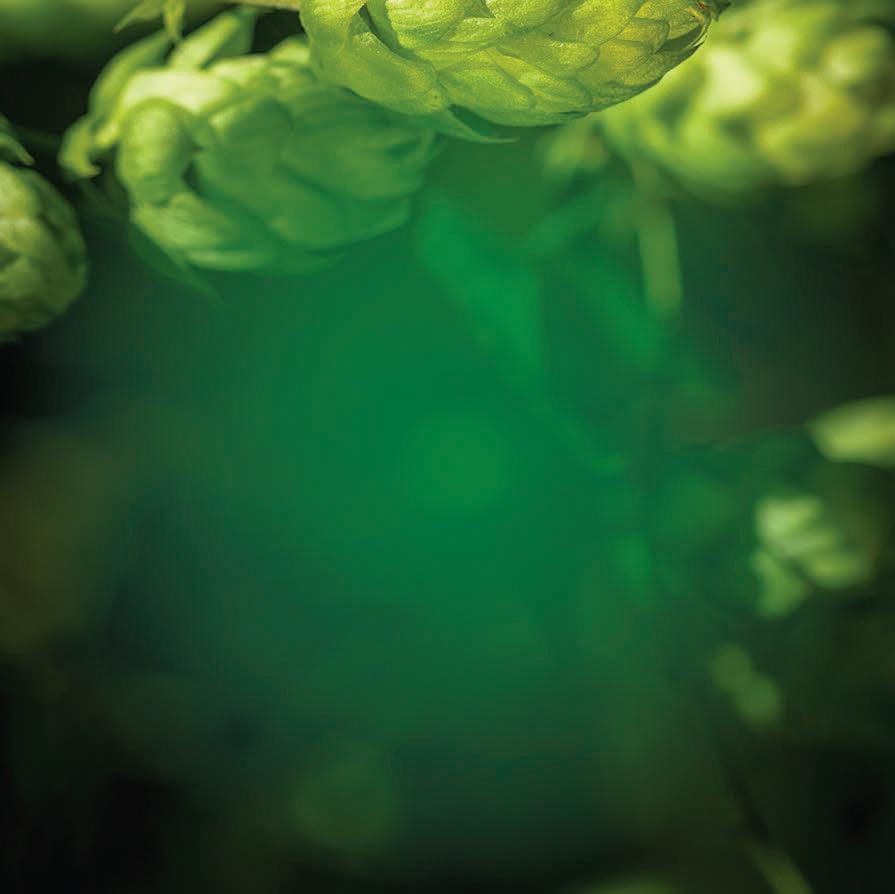































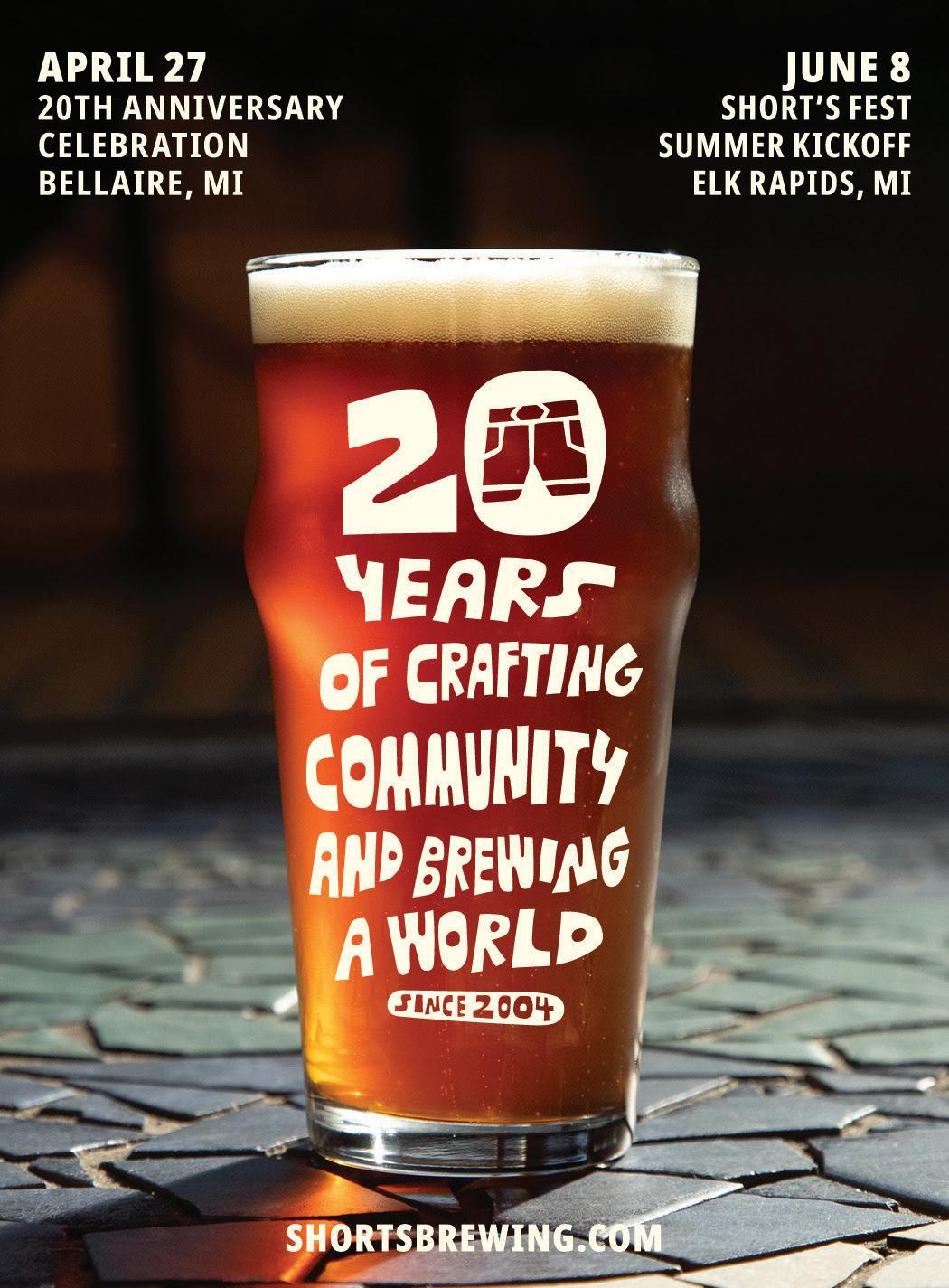





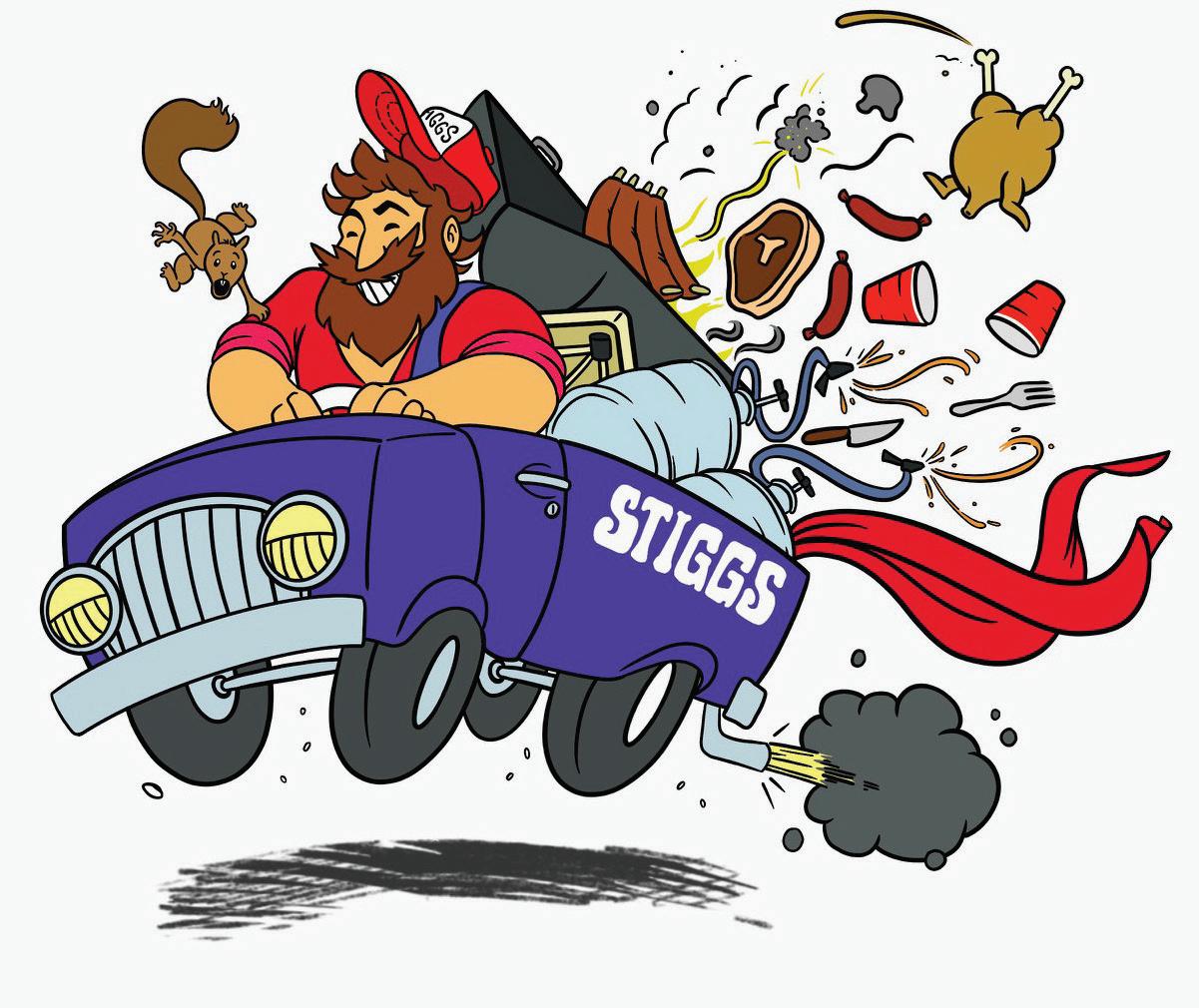







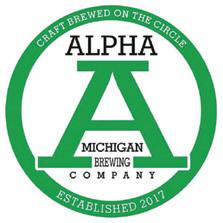






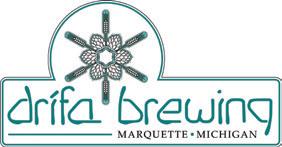

276 HEREFORD & HOPS ESCANABA
HEREFORDANDHOPS.COM


277 JASPER RIDGE BREWERY
ISHPEMING
JASPERRIDGEBREWERY.COM
278 KEWEENAW BREWING CO.
HOUGHTON
KEWEENAWBREWING.COM
279 KEWEENAW BREWING CO.
SOUTH RANGE
KEWEENAWBREWING.COM
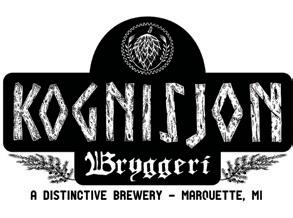
280 KOGNISJON BRYGGERI
MARQUETTE
KOGBREW.COM
281 LAKE SUPERIOR BREWING CO.
GRAND MARAIS
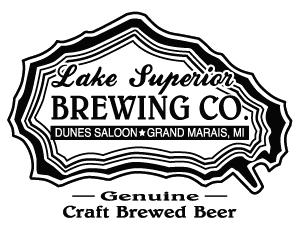
GRANDMARAISMICHIGAN.COM/LSBC
282 LAKE SUPERIOR SMOKEHOUSE BREWPUB
HARVEY
LAKESUPERIORSMOKEHOUSE.COM
283 LATULIP BREWING CO.
COOKS
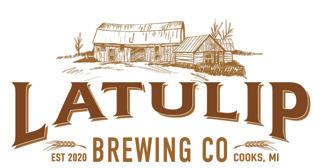
FACEBOOK.COM/LATULIPBREWINGCO/
284 LES CHENEAUX DISTILLERS
CEDARVILLE
LESCHENEAUXDISTILLERS.COM
285 ORE DOCK BREWING CO.
MARQUETTE
ORE-DOCK.COM
286 RED JACKET BREWING CO.
CALUMET
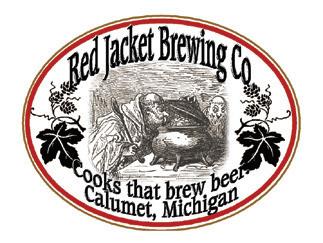
MICHIGANHOUSECAFE.COM
287 SOO BREWING
SAULT STE. MARIE
SOOBREW.COM
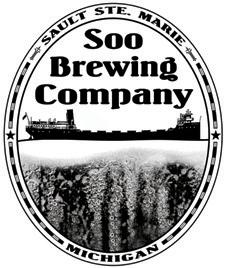
288 SUPERIOR CULTURE
MARQUETTE

SUPERIORCULTUREMQT.COM
289 TAHQUAMENON FALLS BREWERY & PUB
PARADISE
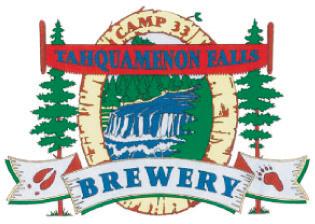
TAHQUAMENONFALLSBREWERY.COM
290 THE VIERLING RESTAURANT & MARQUETTE
HARBOR BREWERY
MARQUETTE
THEVIERLING.COM
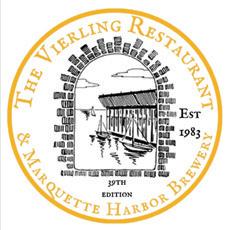

291 THREE BRIDGE BREWING CO.
MENOMINEE

FACEBOOK.COM/THREEBRIDGEBREWING
292 UPPER HAND BREWERY
ESCANABA
UPPERHANDBREWERY.COM
293 UPPER PENINSULA BREWING CO.
NEGAUNEE


UPPERPENINSULABREWINGCOMPANY.COM

HOW ABOUT A SELECTION OF HUNDREDS TO CHOOSE FROM, ALL AT ONE EVENT?
That’s what you’ll get when you attend one of our annual festivals around the state. Learn more at mibeer.com and become an Enthusiast member to get VIP presale ticket access and early entry privileges.







WINTER BEER FESTIVAL
FEBRUARY
LMCU Ballpark, Comstock Park
Enjoy our state’s thriving beer scene in VIP style by becoming an Enthusiast member with the Guild. You’ll get access to presale tickets and early entry privileges for all of our festivals, which feature hundreds of fresh local beers from many of Michigan’s finest breweries. Our festivals are inclusive outdoor celebrations of beer where everyone 21 and up is warmly welcomed. Come join us! Visit mibeer.com to learn more.





SUMMER BEER FESTIVAL
JULY
Riverside Park, Ypsilanti





U.P. FALL BEER FESTIVAL
SEPTEMBER
Mattson Lower Harbor Park, Marquette








DETROIT FALL BEER FESTIVAL
OCTOBER
Eastern Market, Detroit
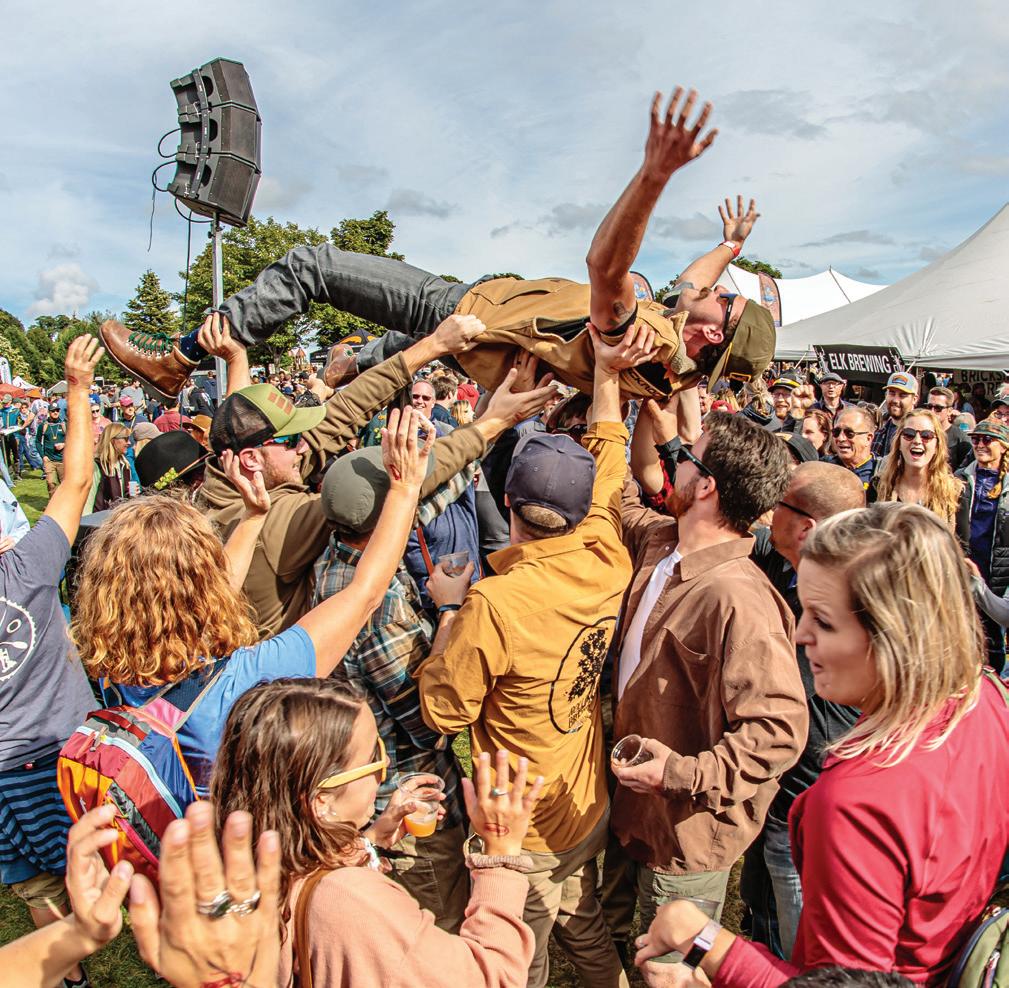

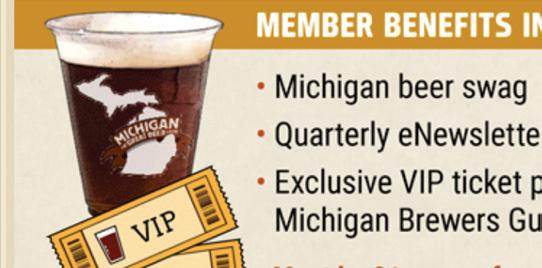






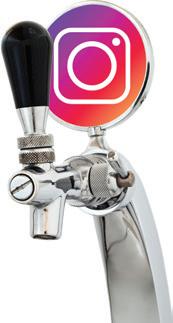


















Book direct and pay in advance to save up to 15%.* Visit ChoiceHotels.com/Michigan or call 1-888-228-5050 to get our lowest price guaranteed.**
Our business is you.TM
Offer is not available to groups and cannot be
this offer at any time. Eligibility restricted to U.S. and Canadian
All Choice Hotels properties are independently owned and
or double occupancy room that are at least 1% and $1.00 less than the
prior to 6 PM check-in time the day of hotel arrival. Other terms also
©2019 Choice Hotels International. All rights reserved.












